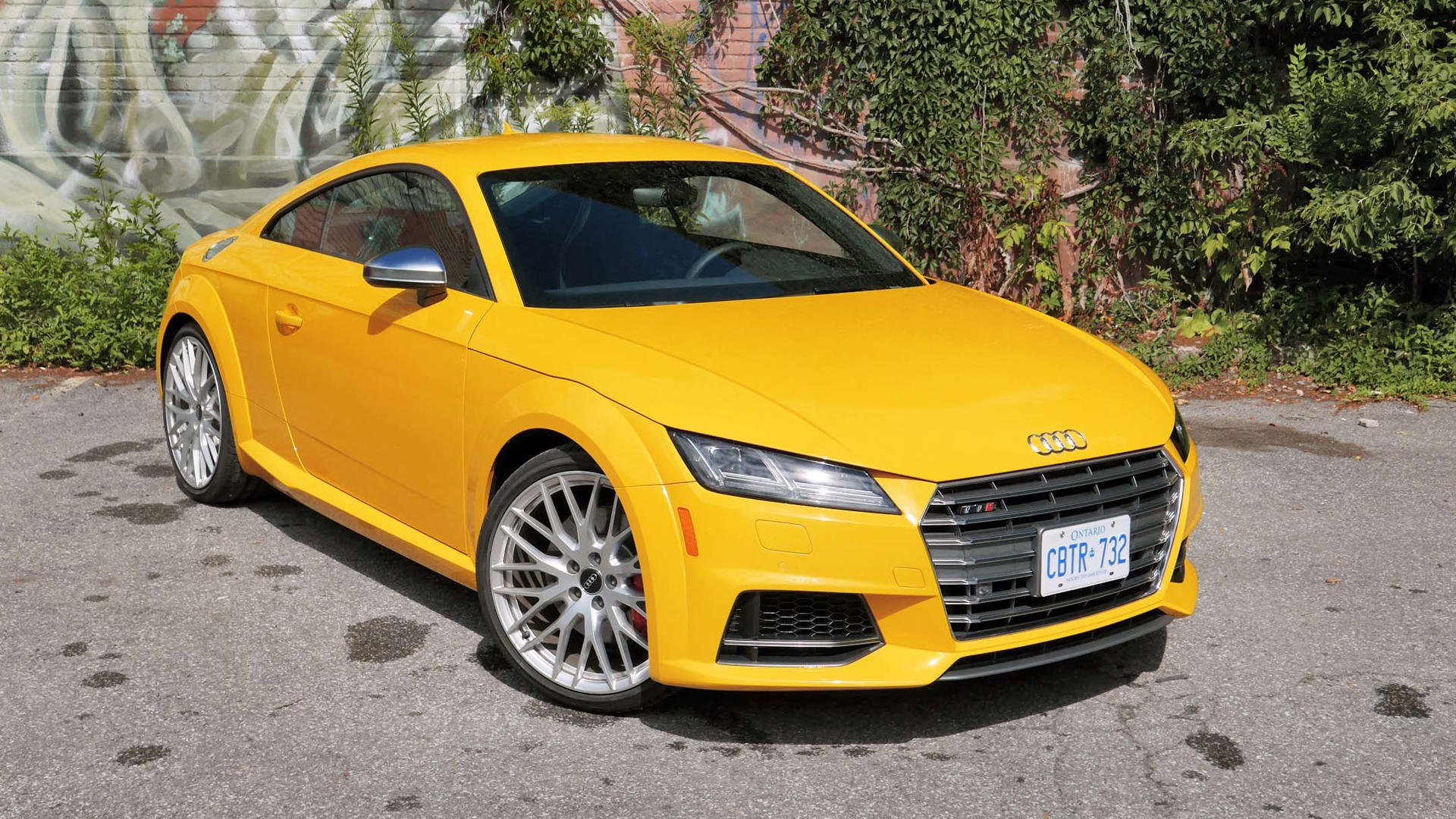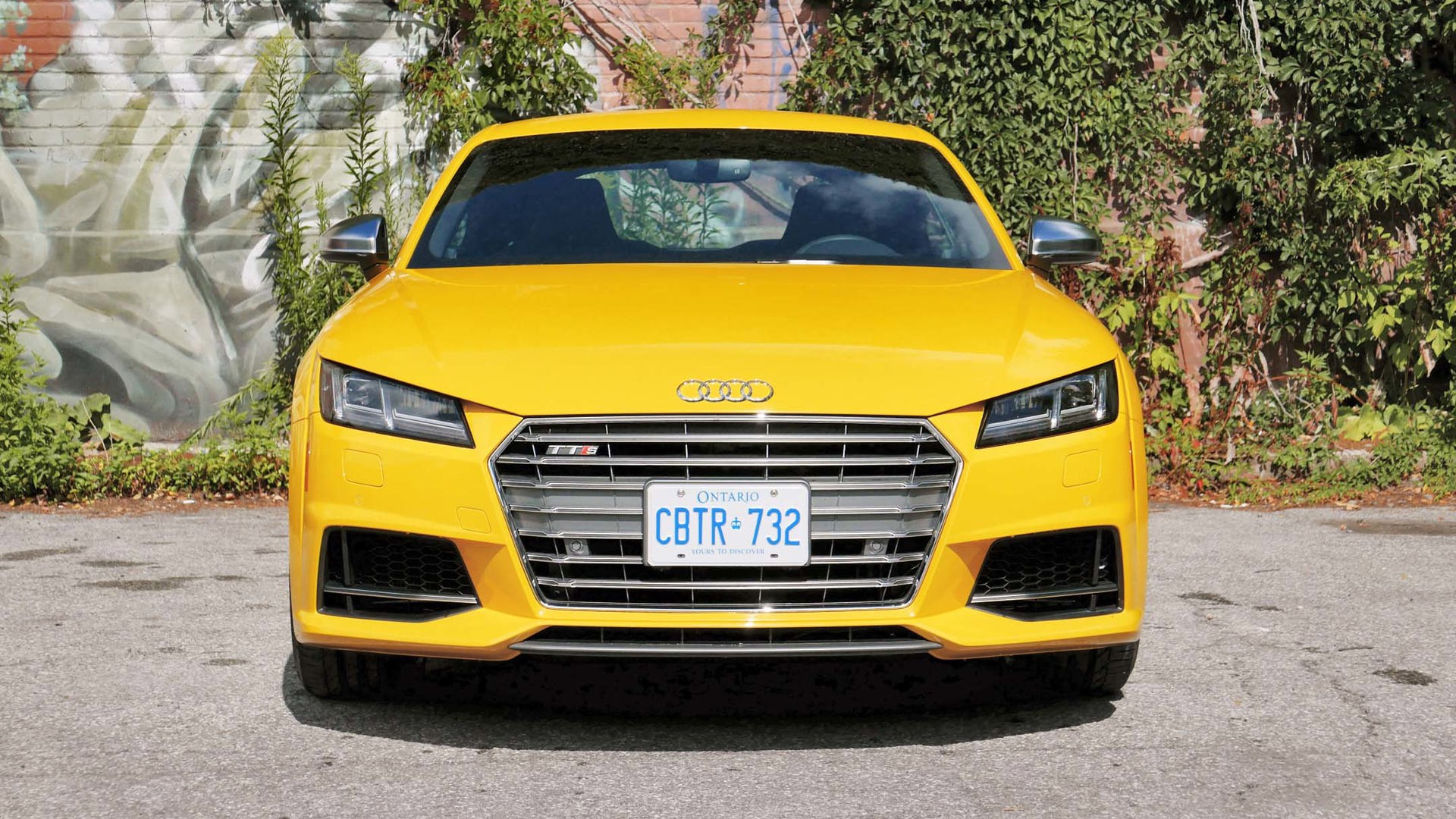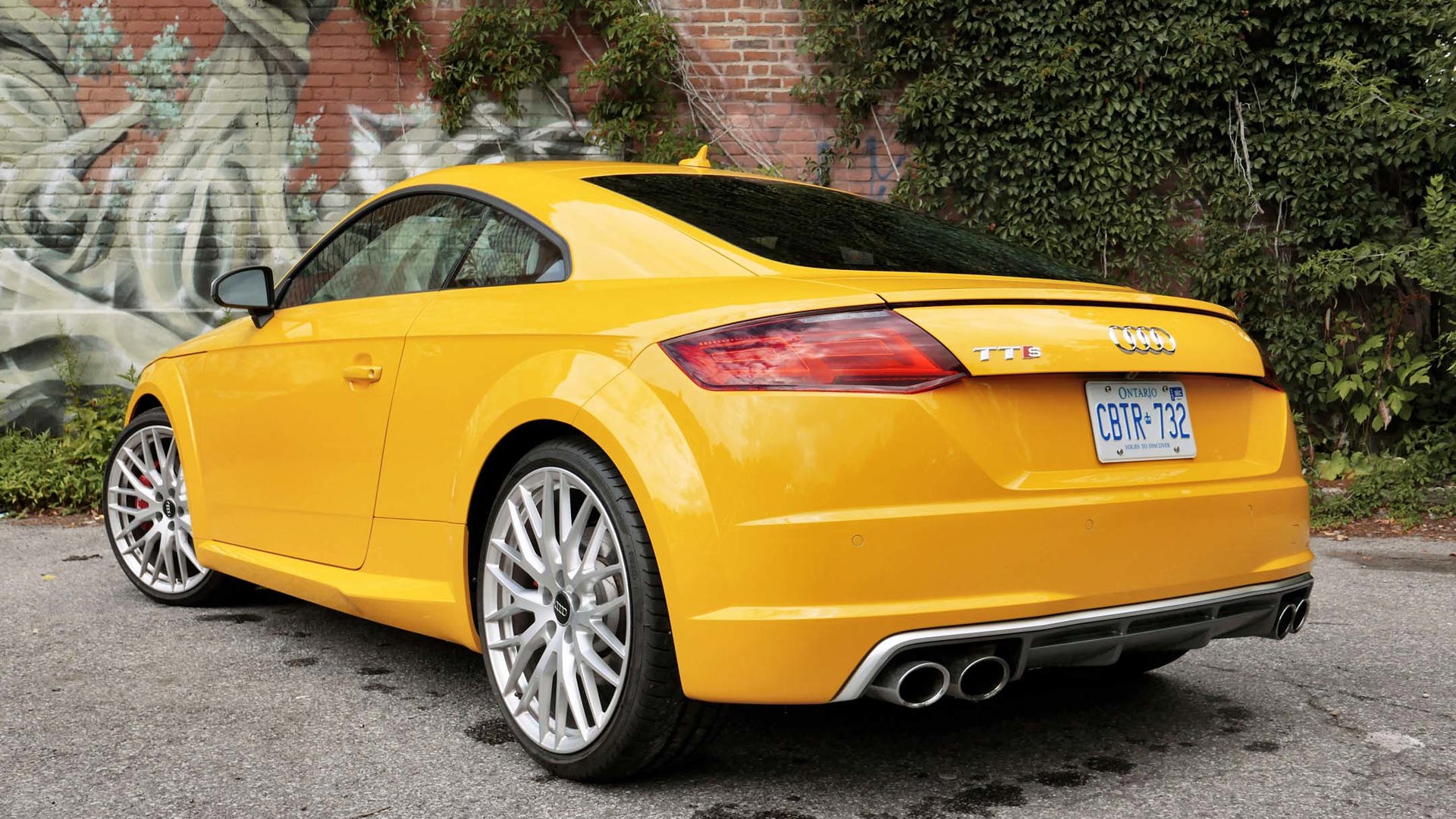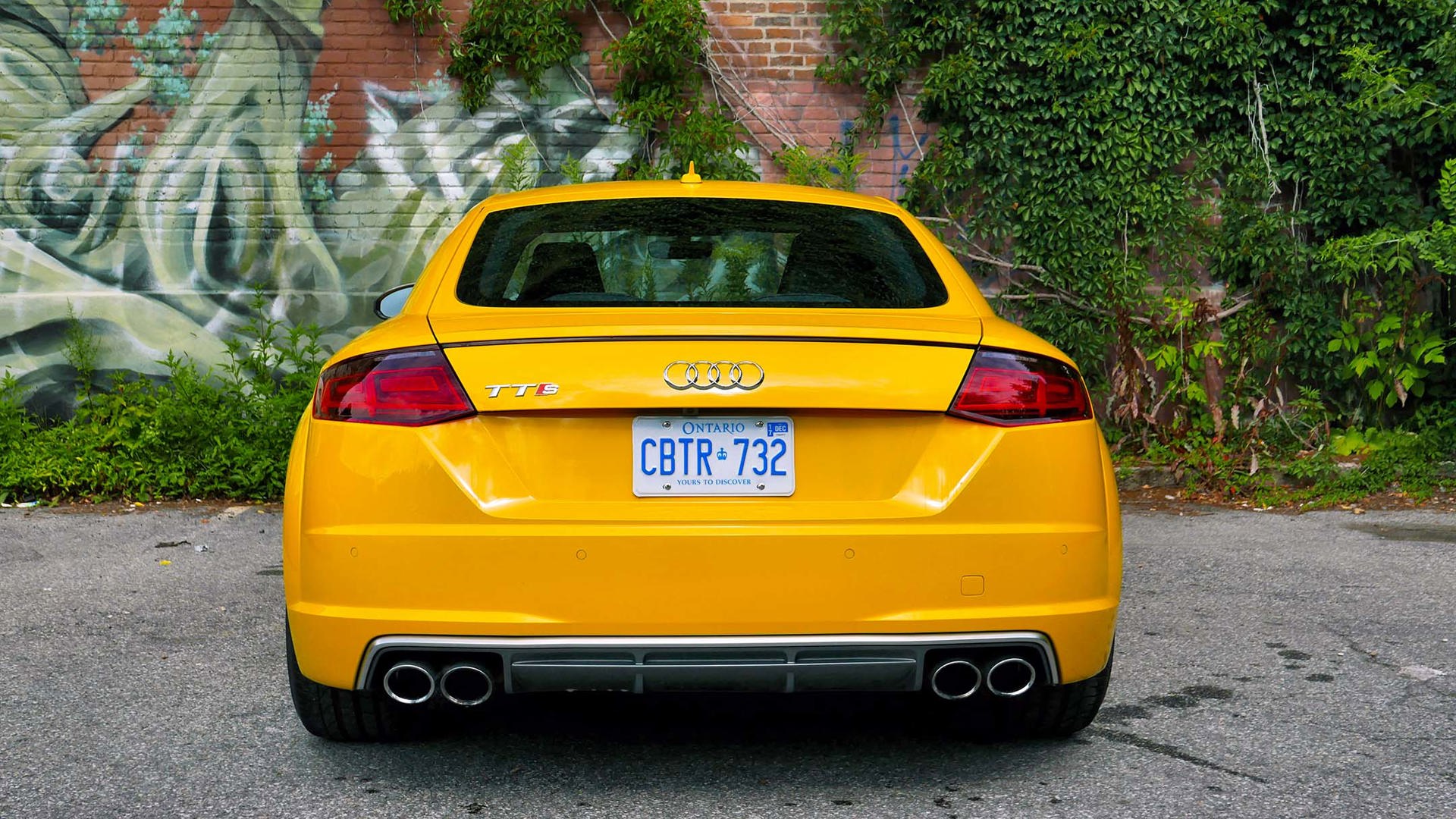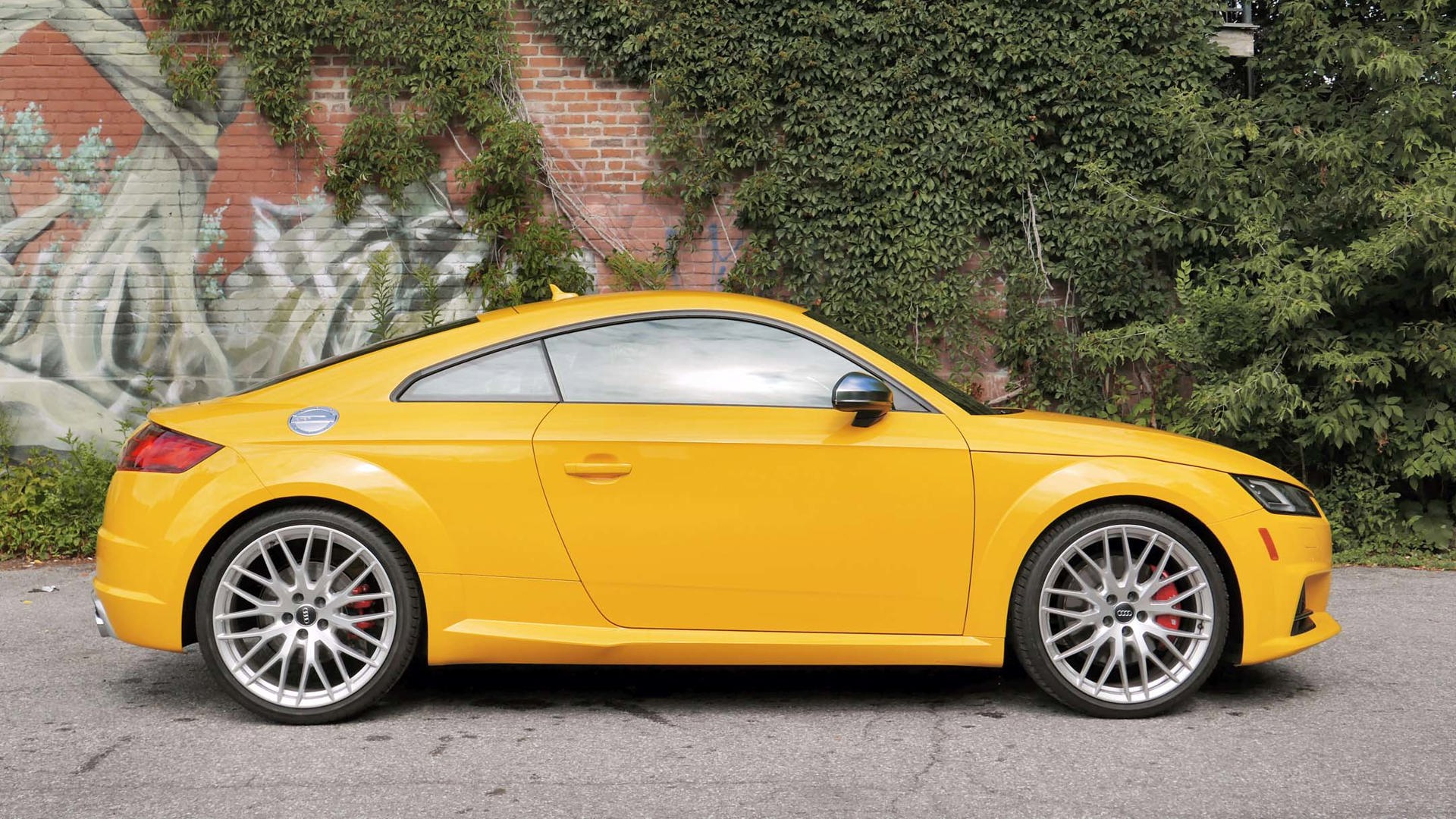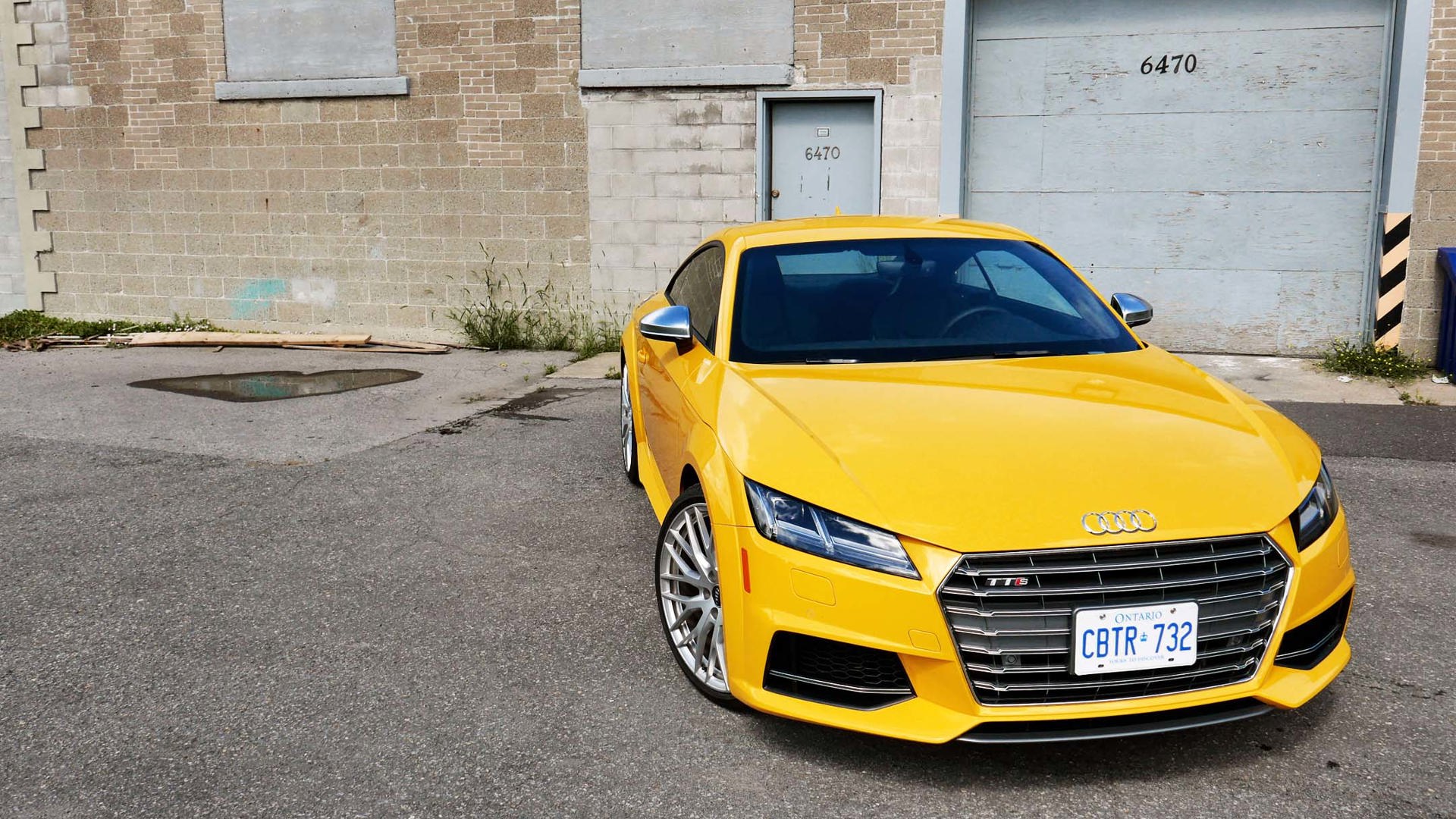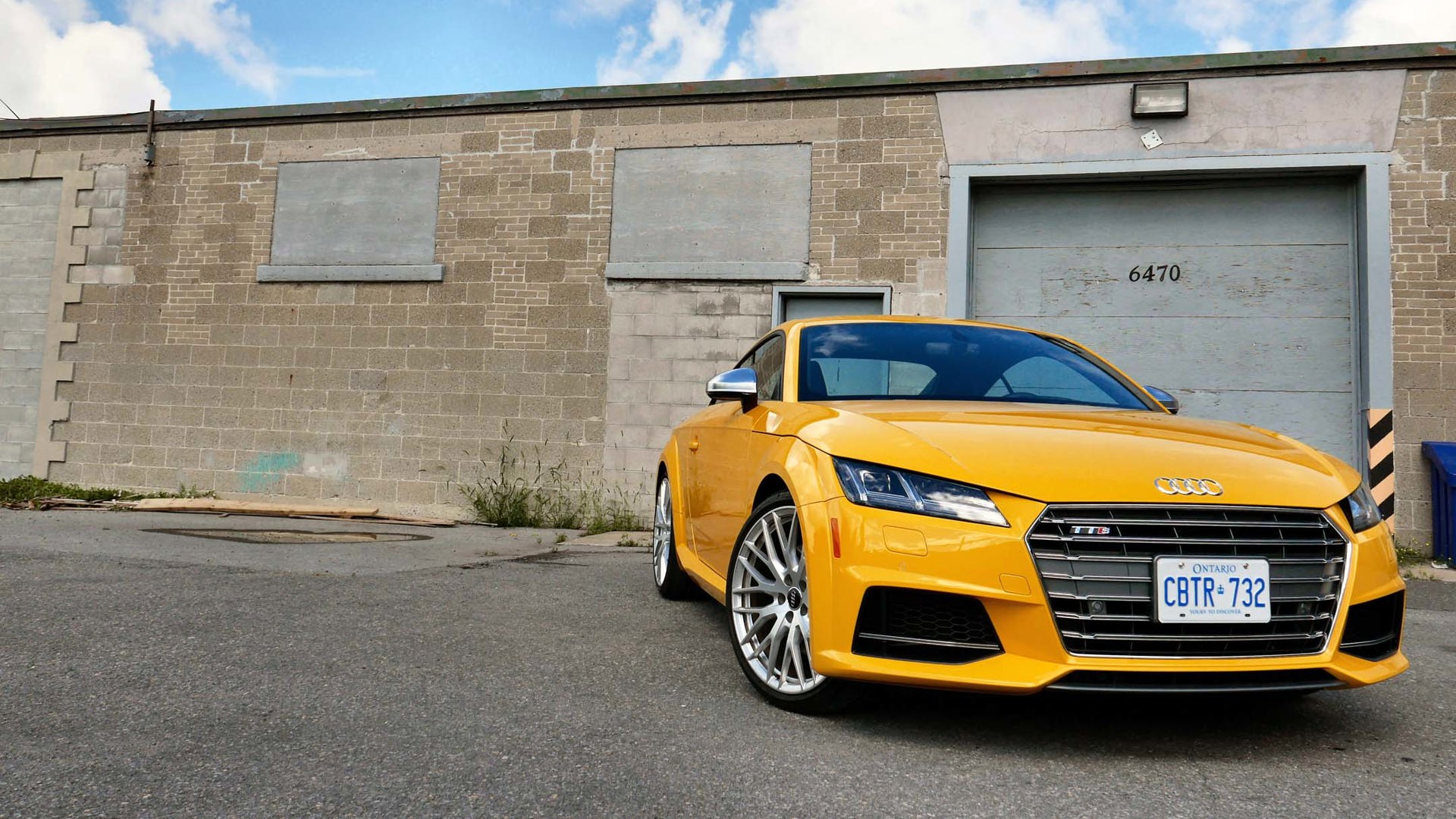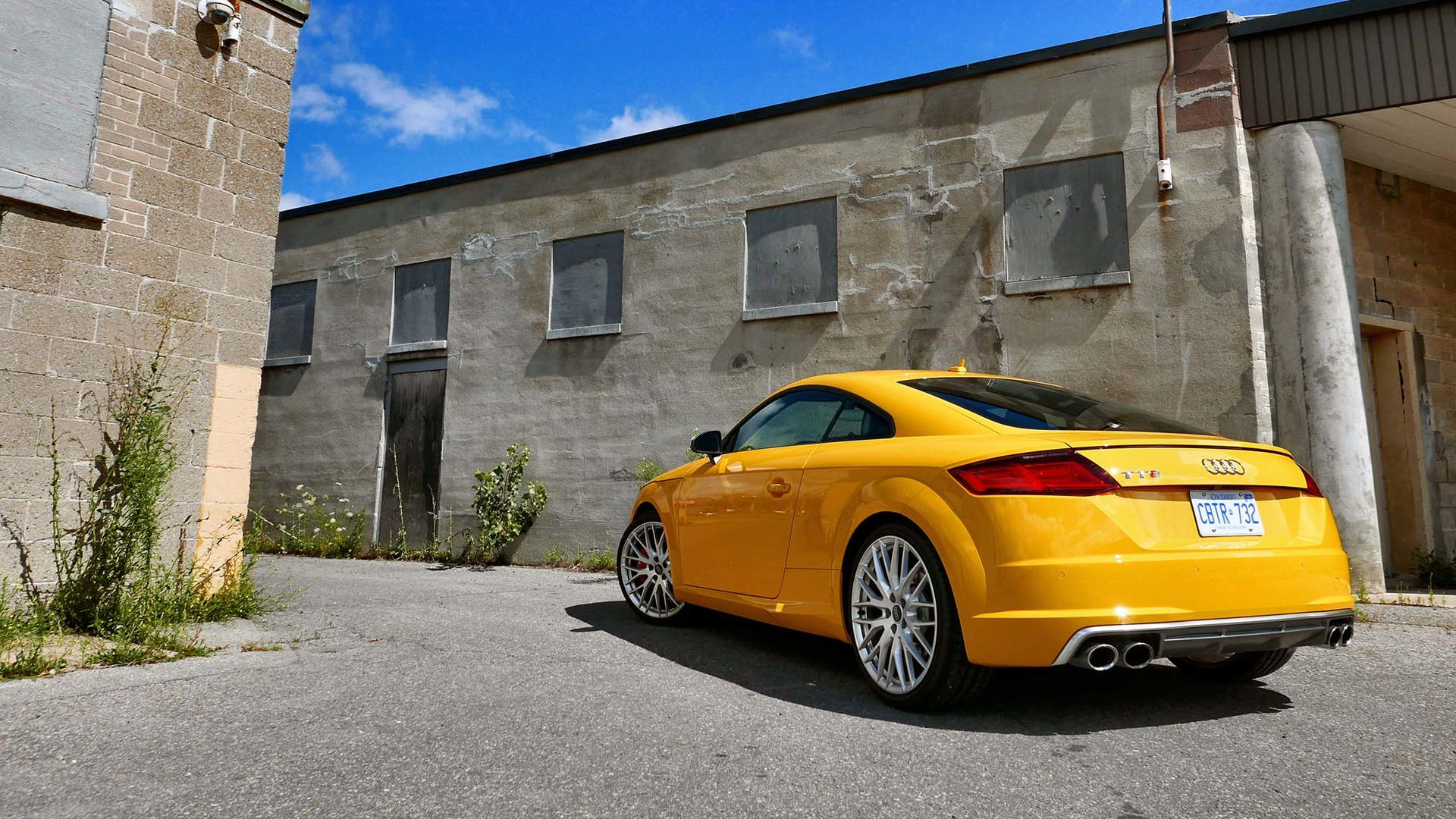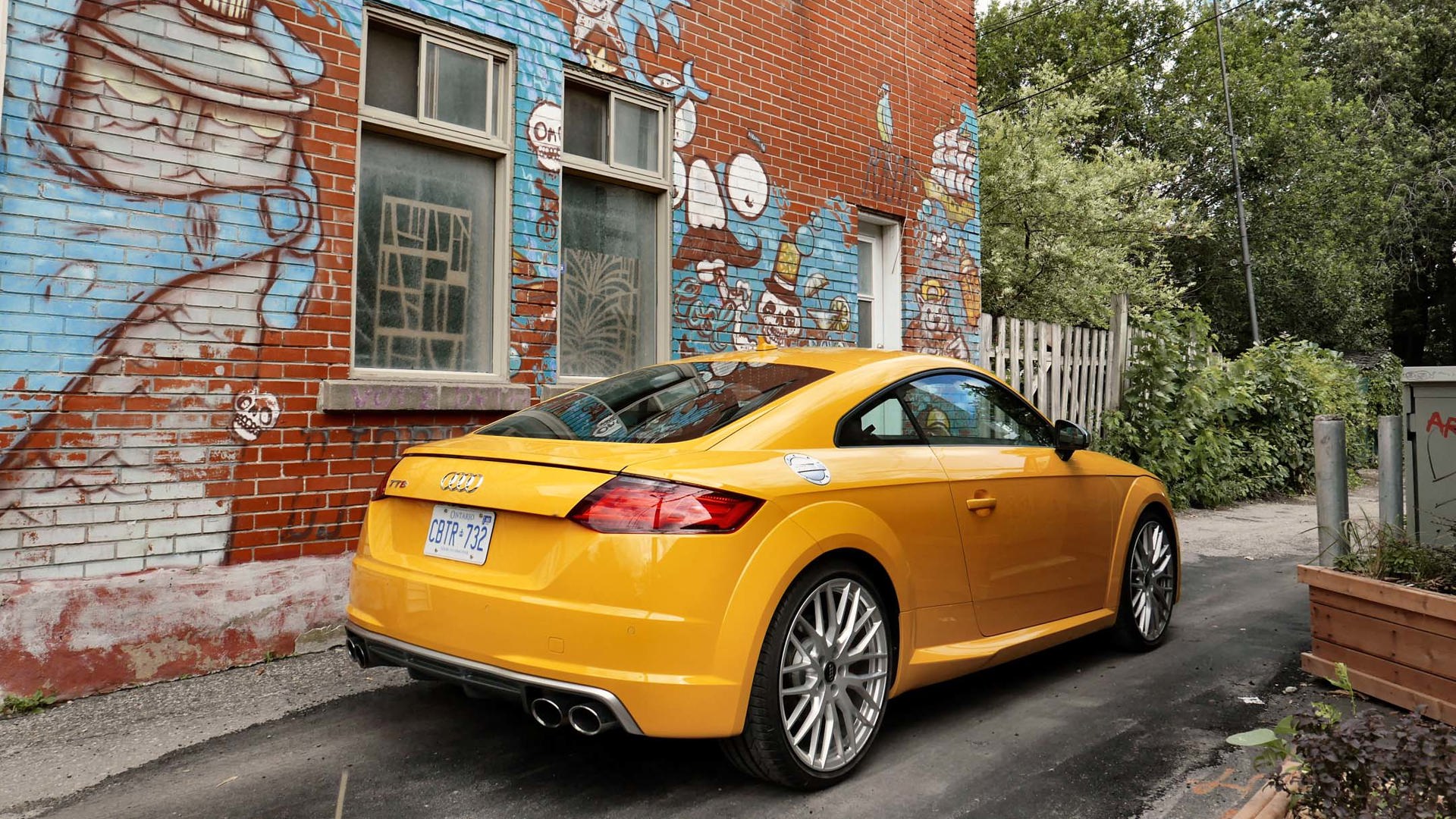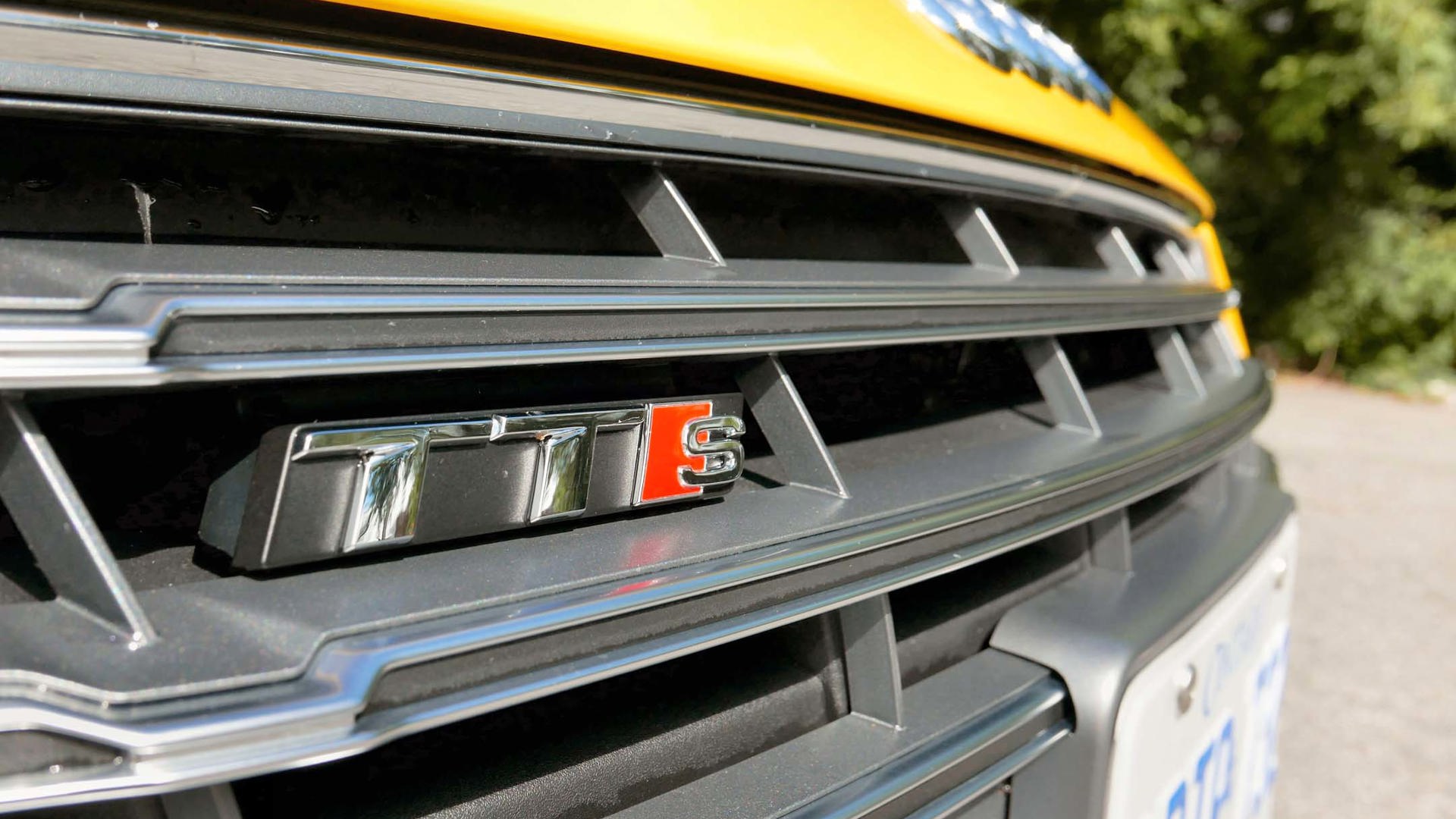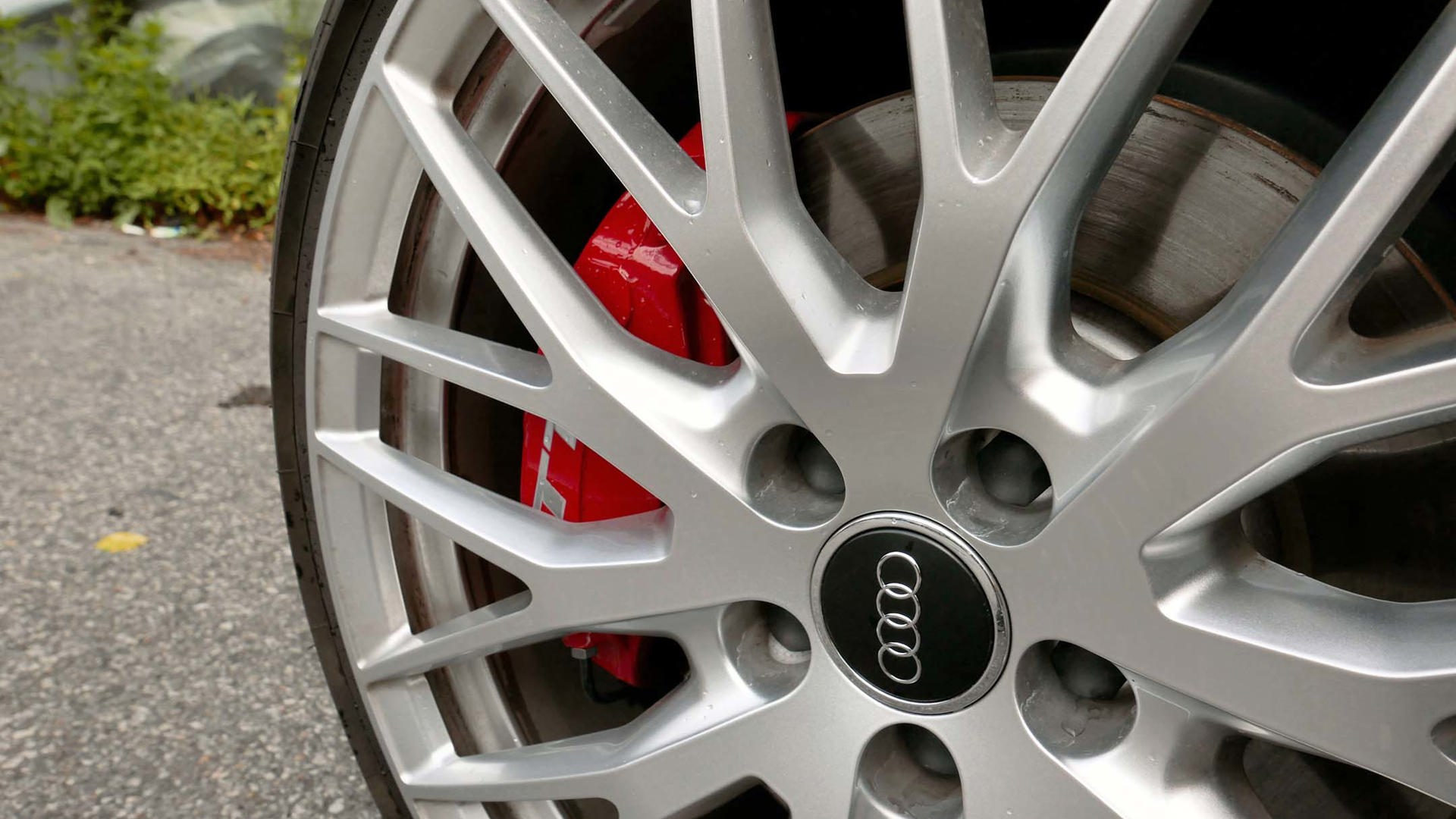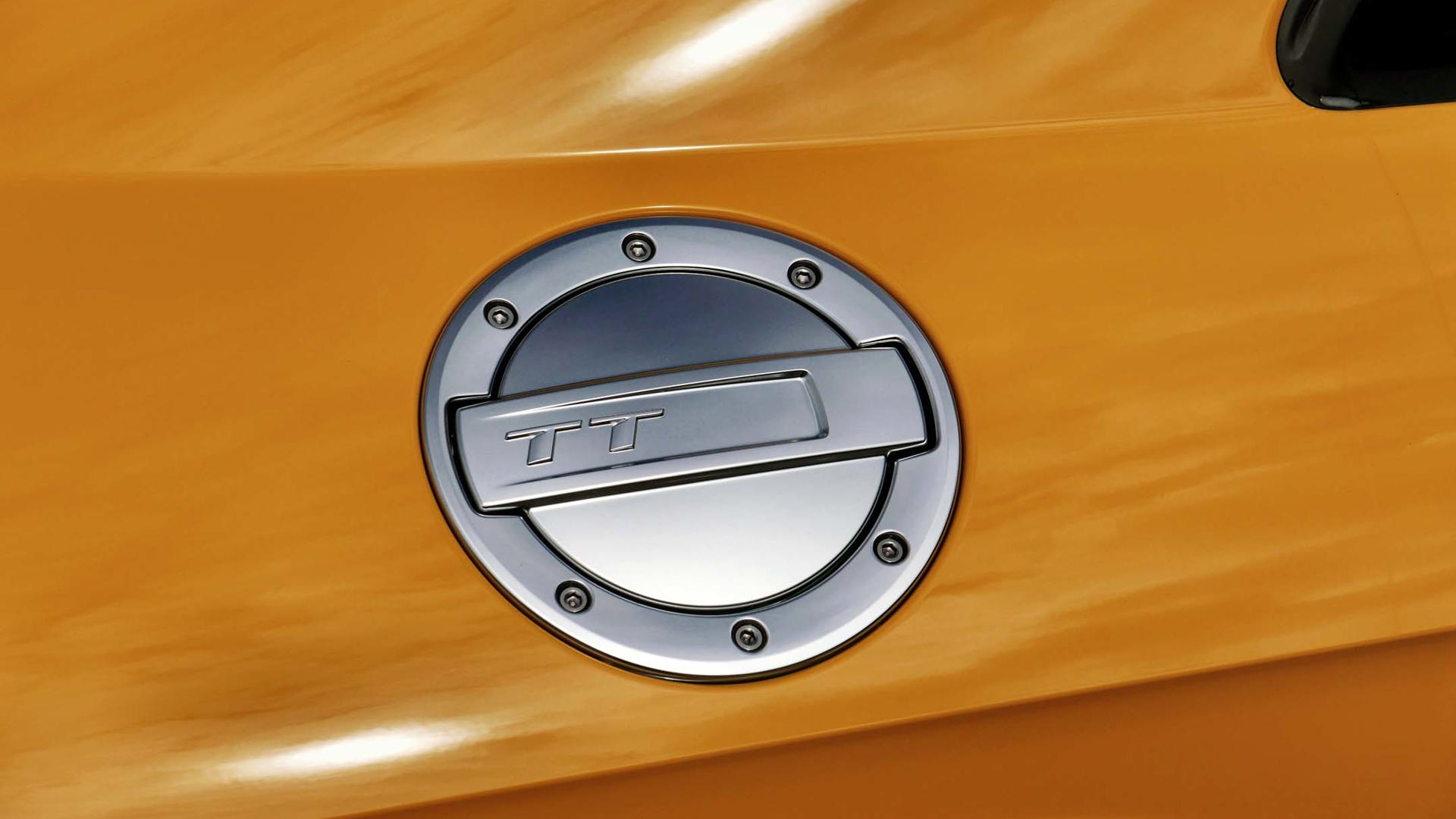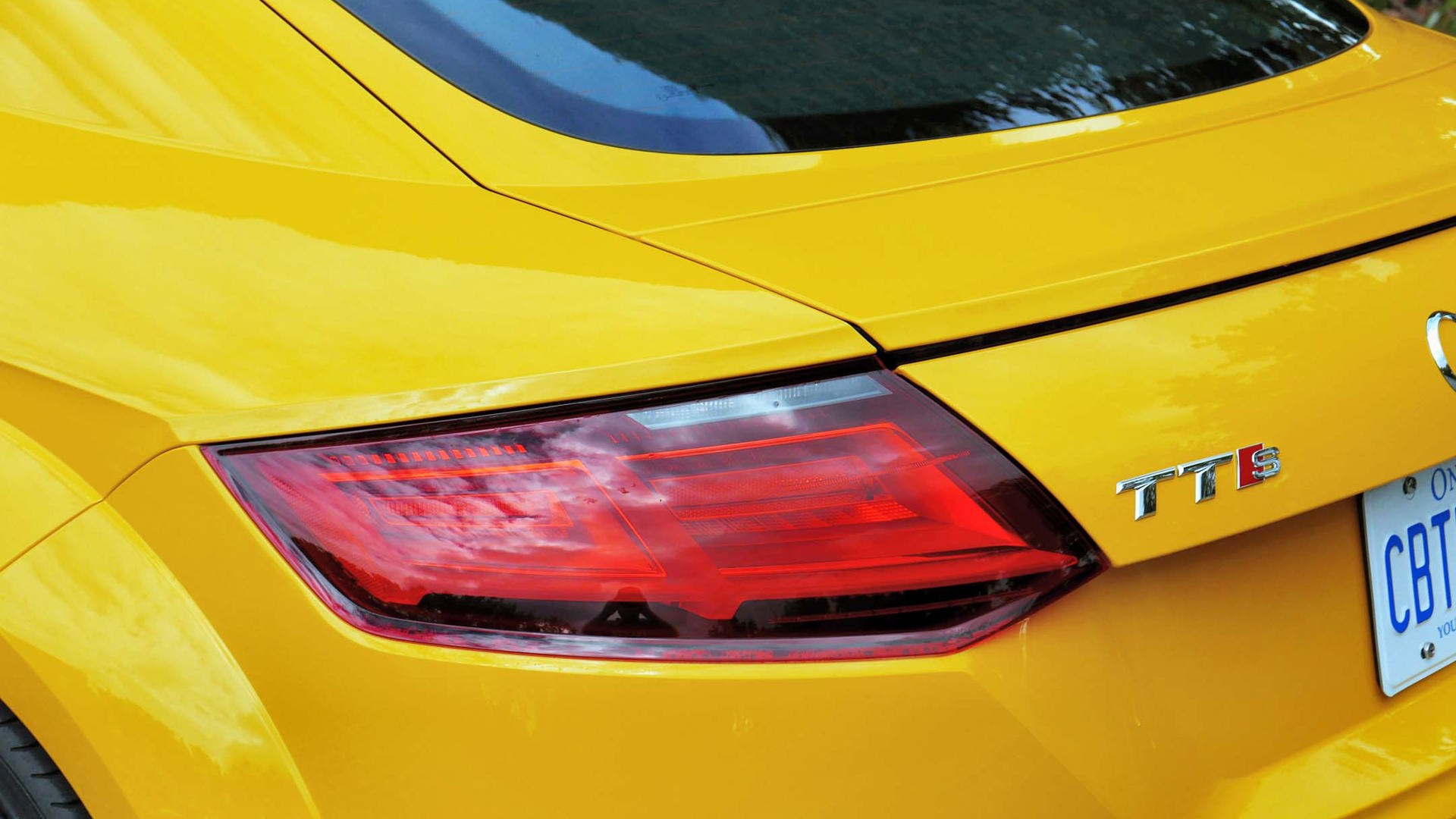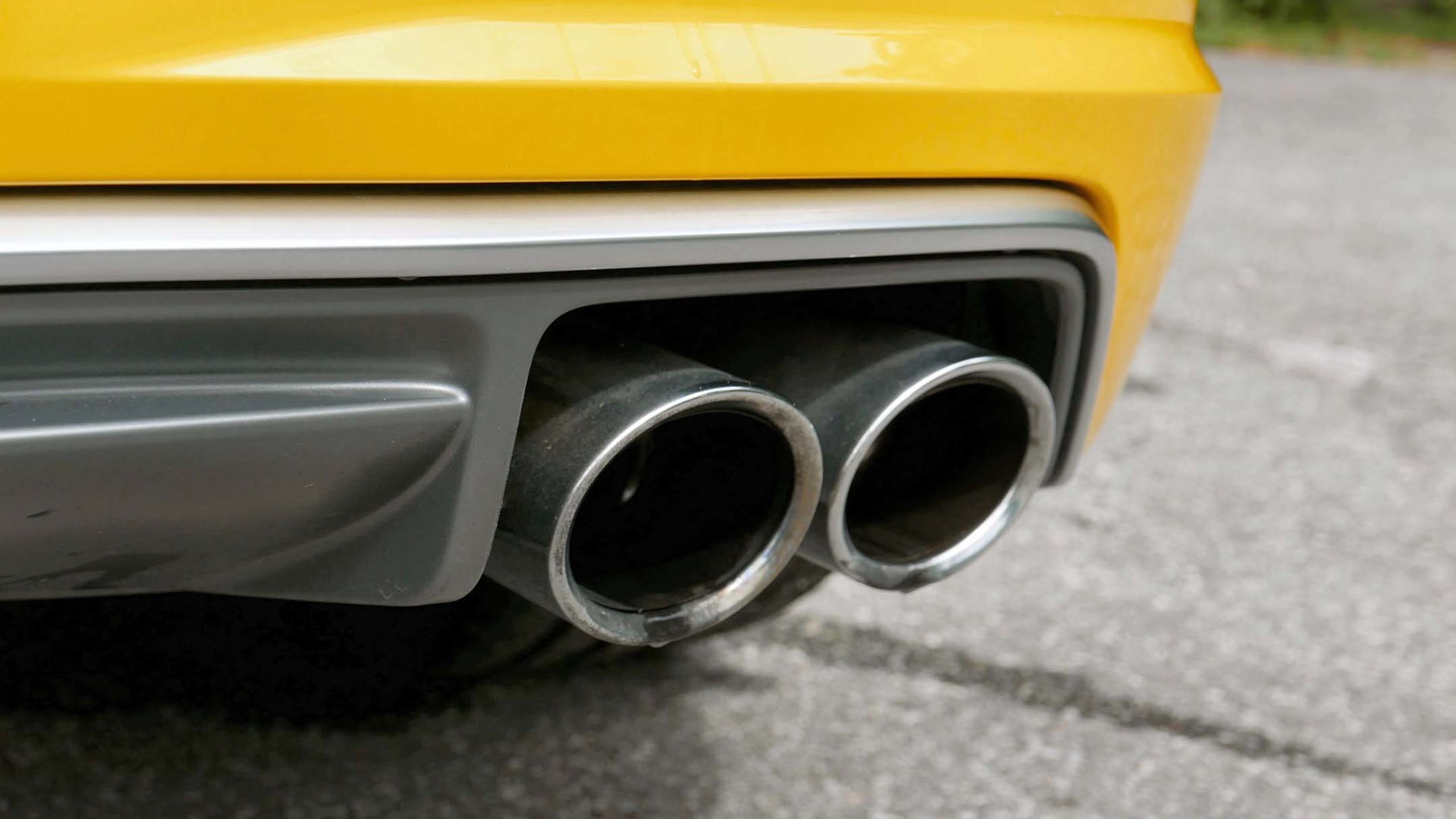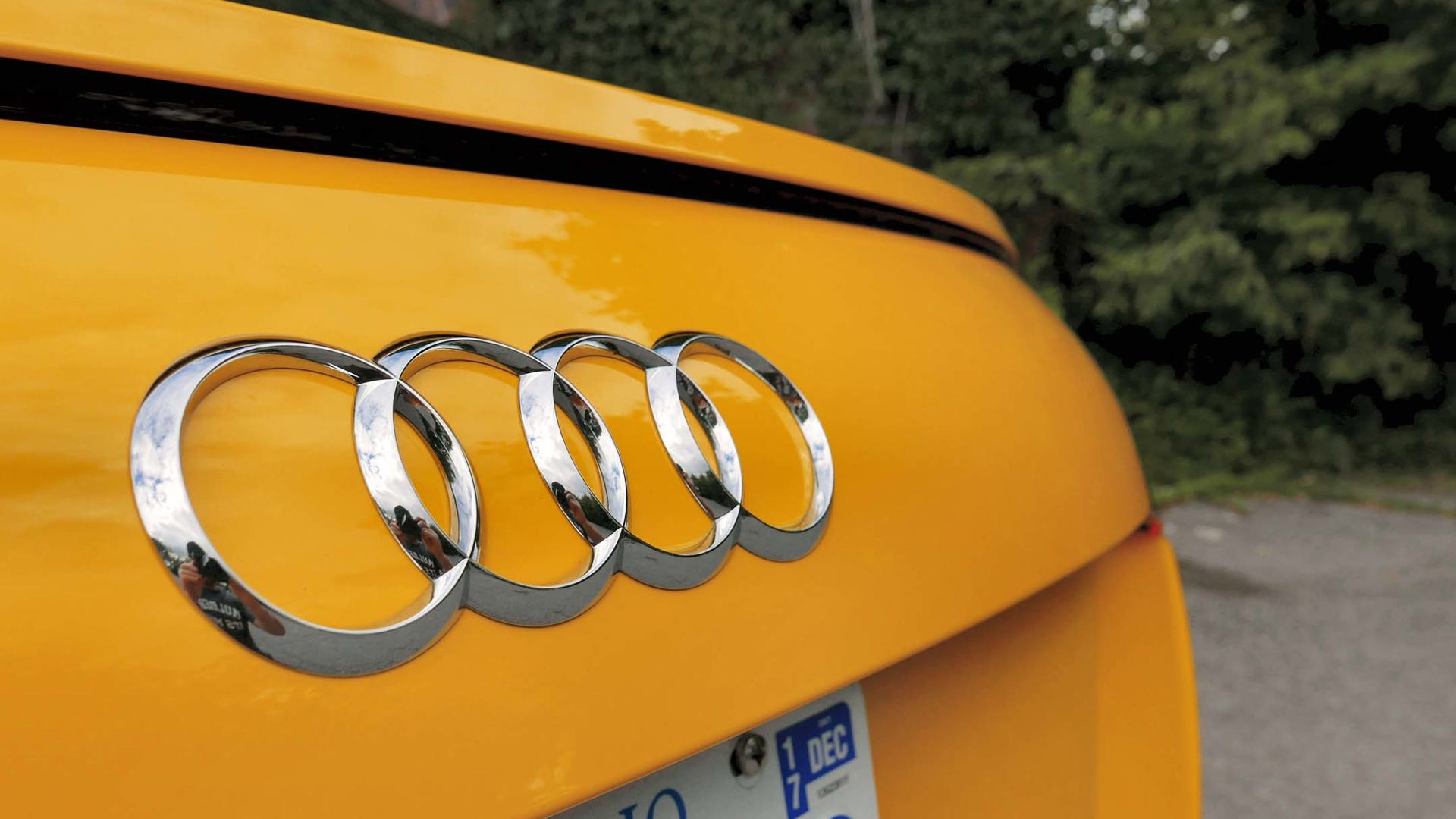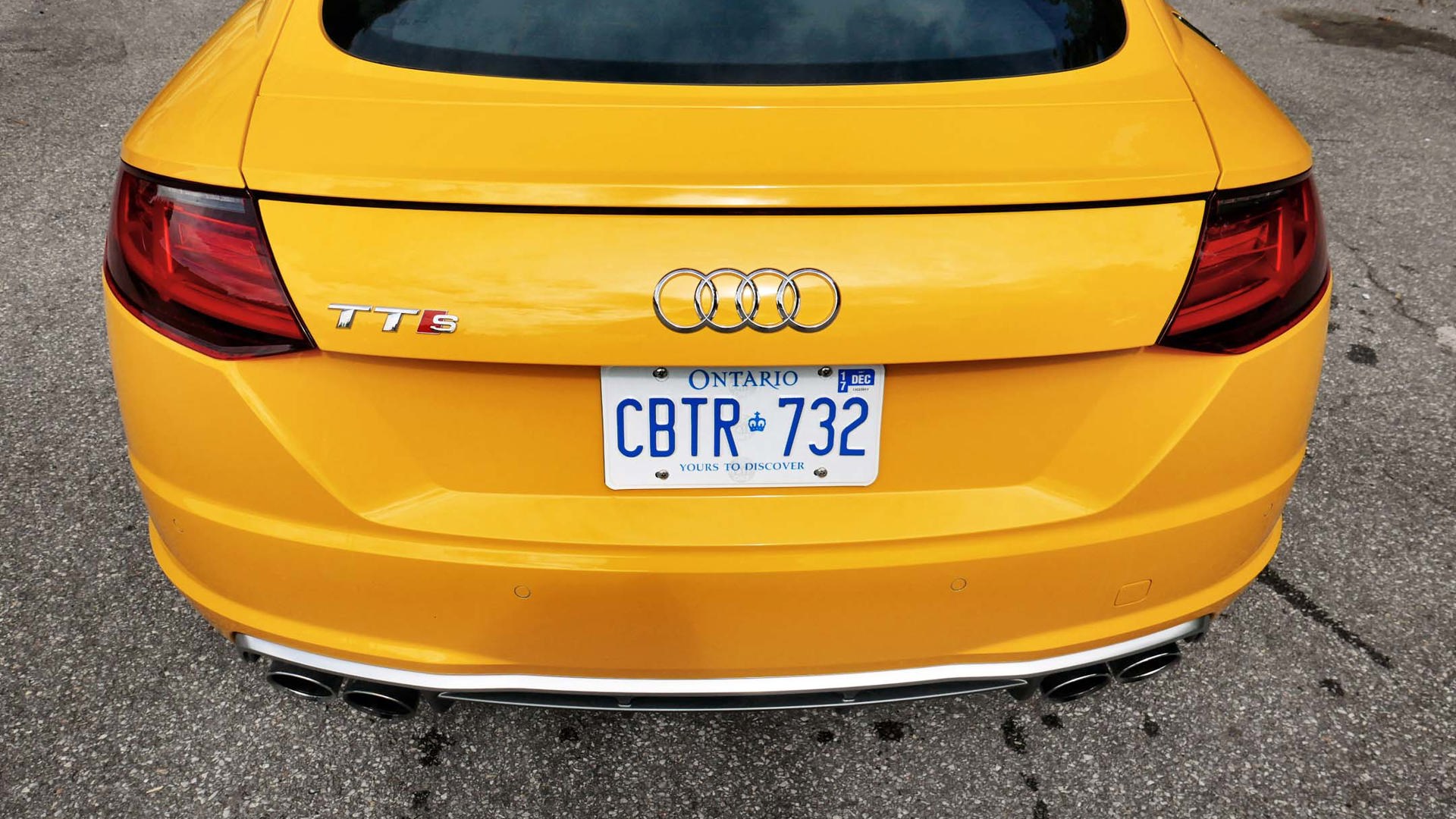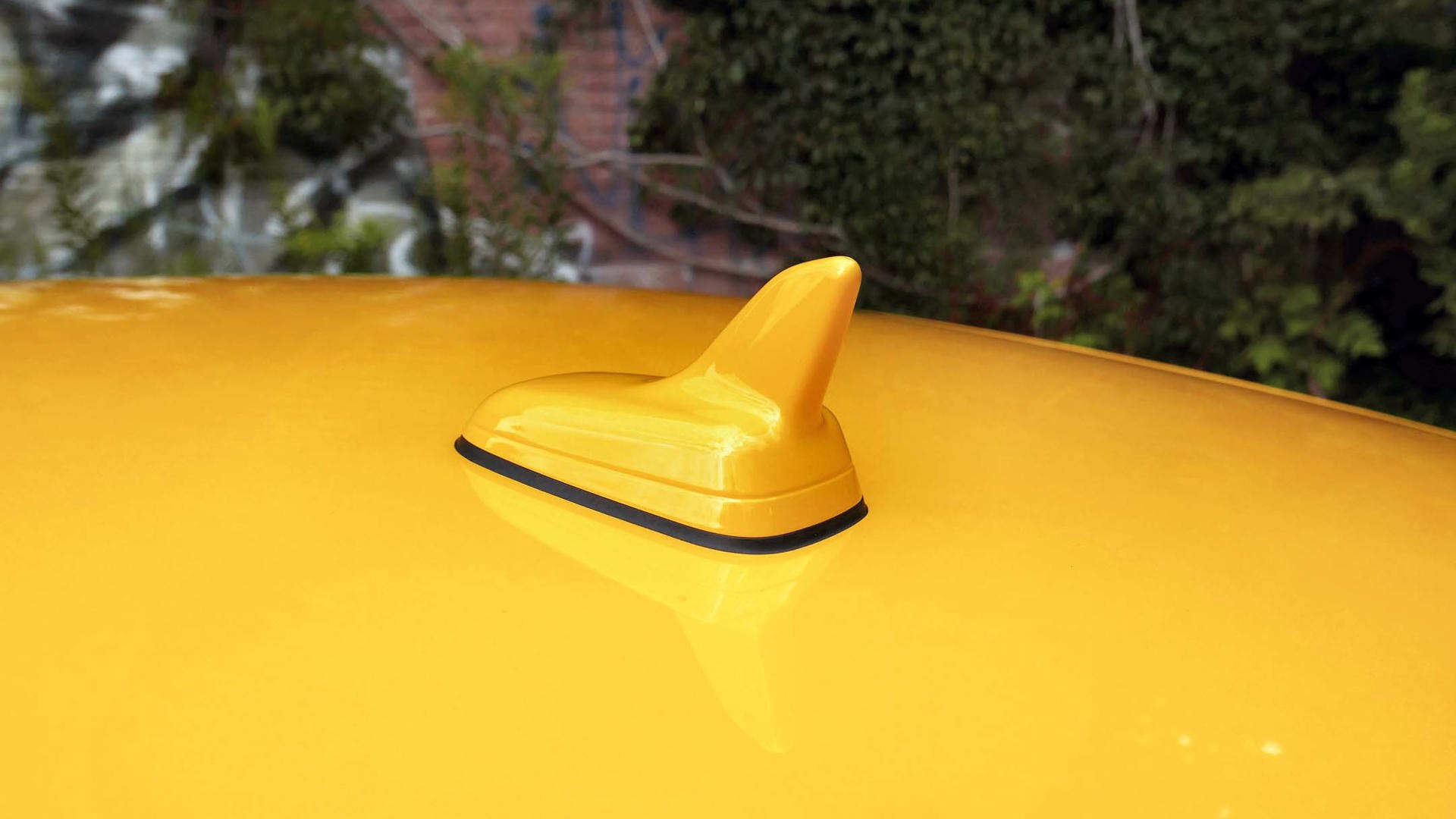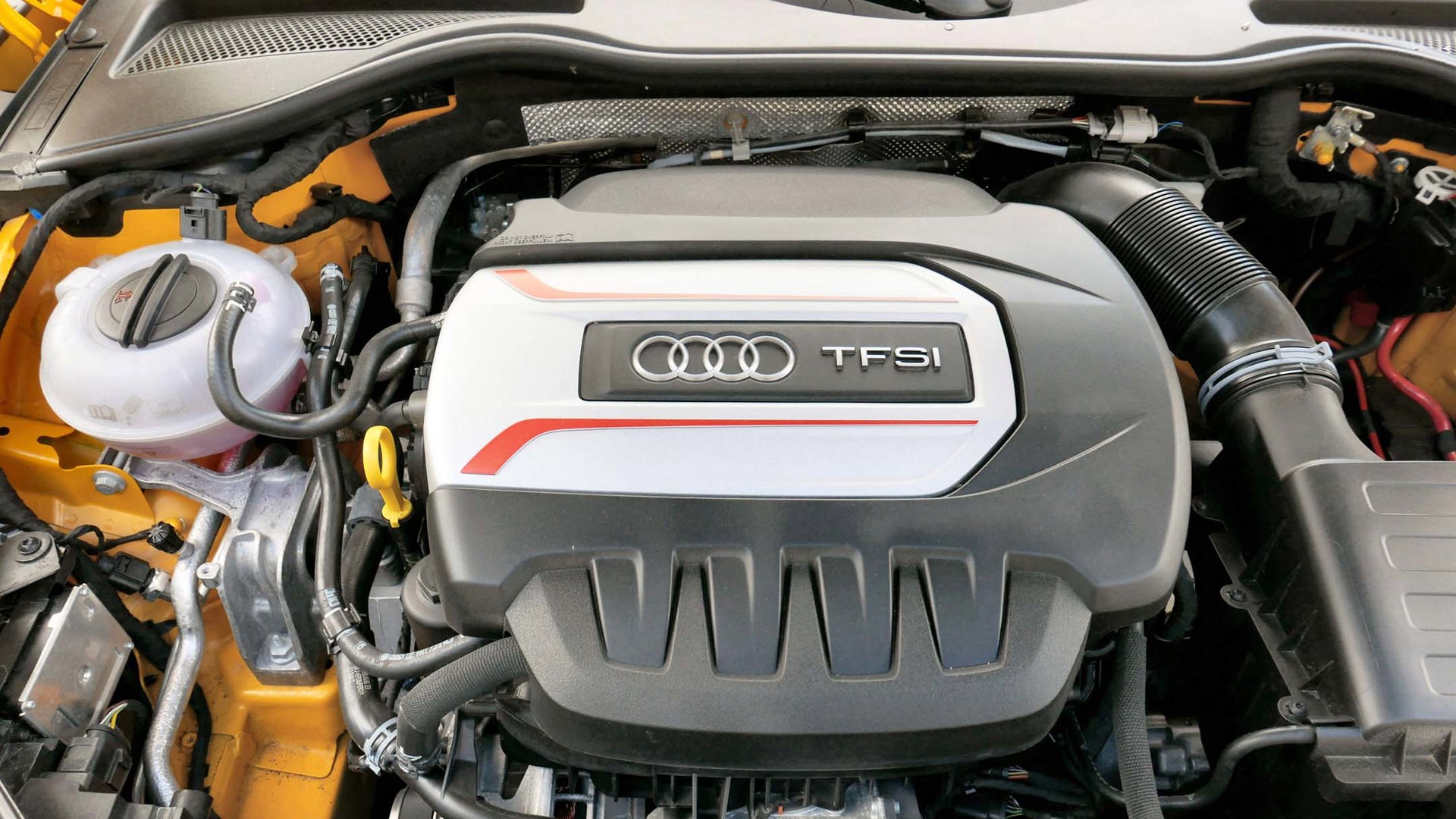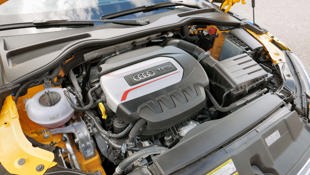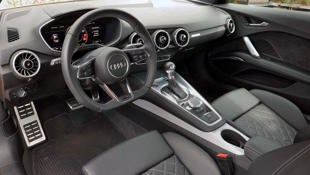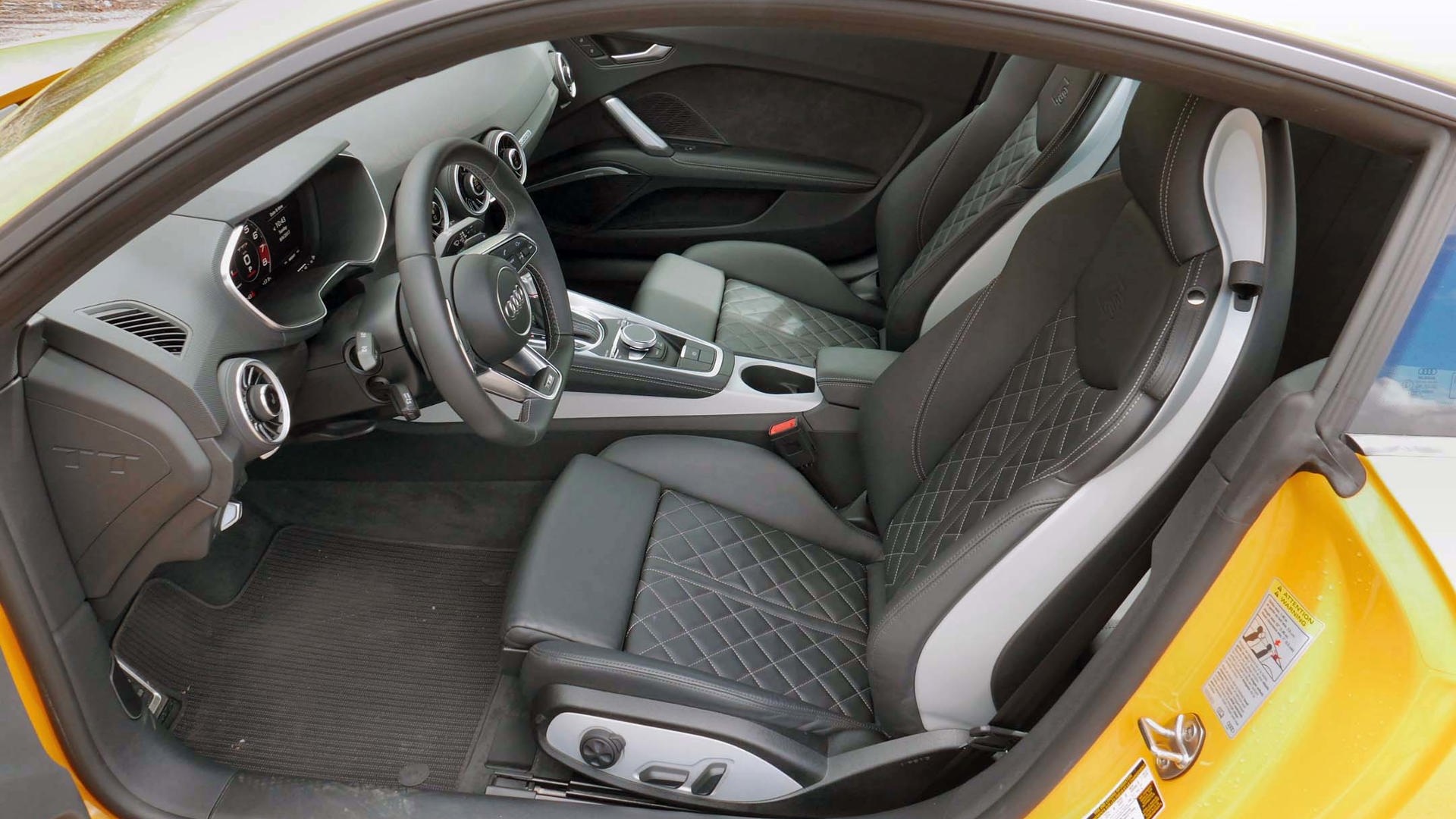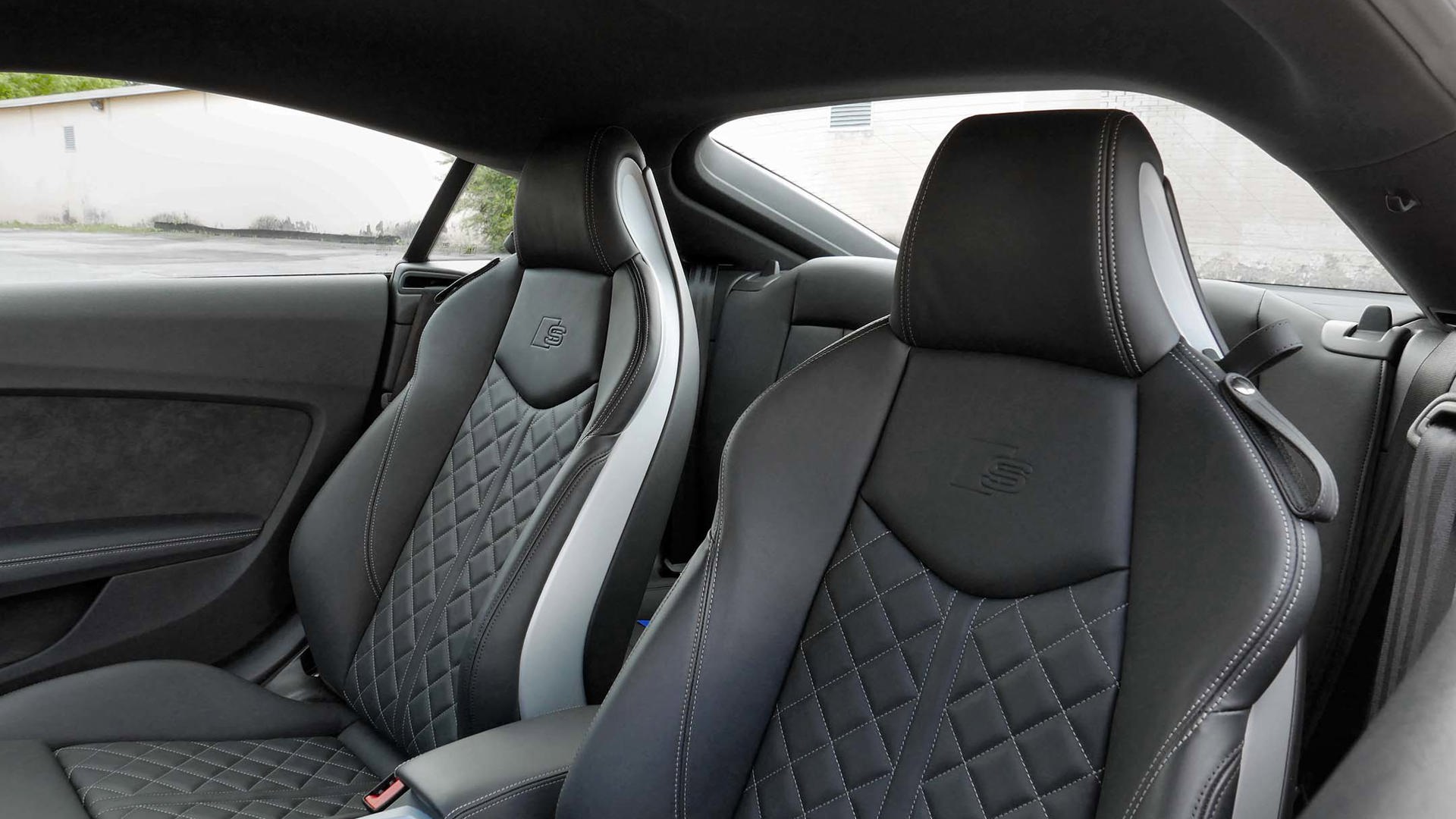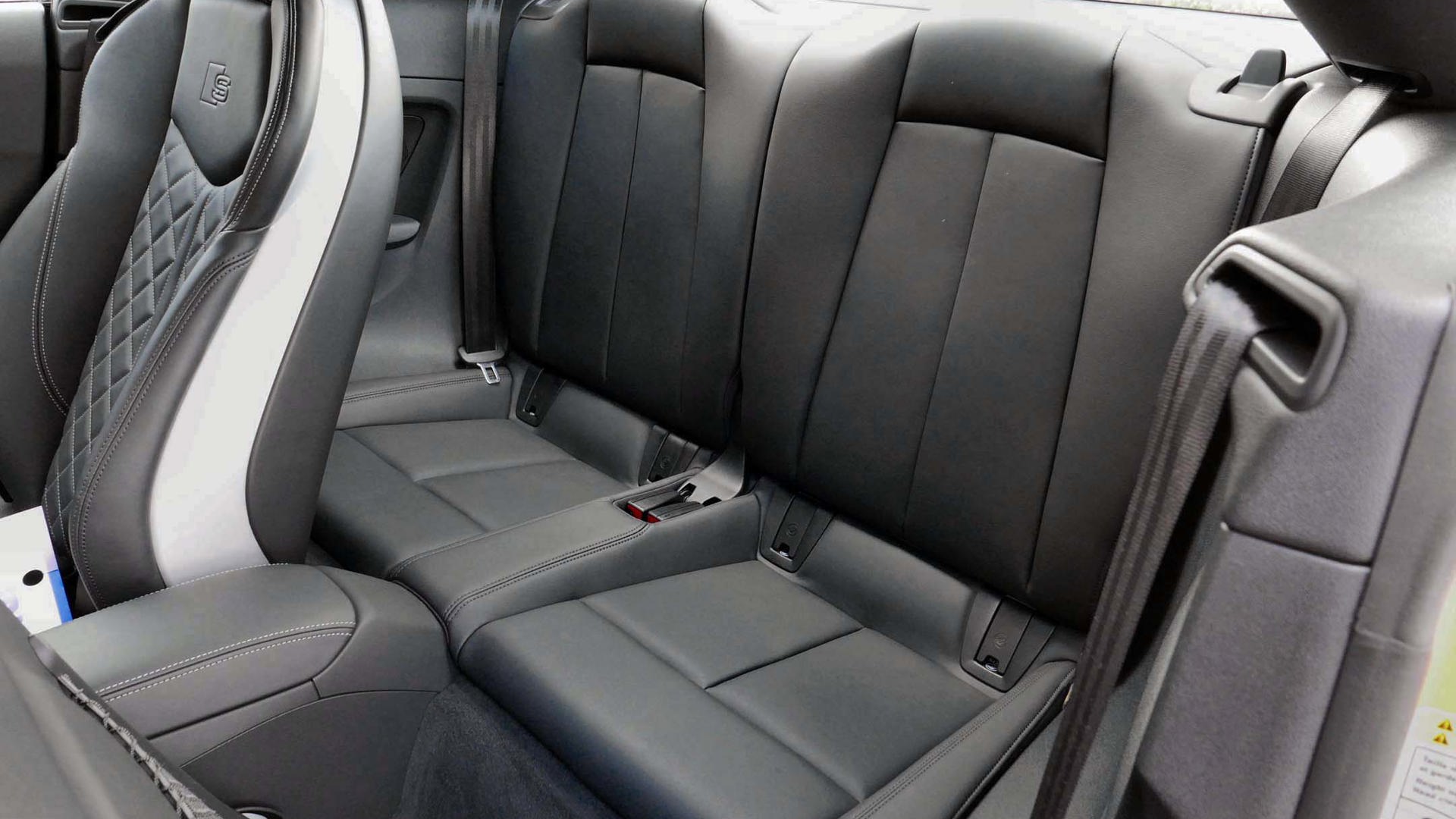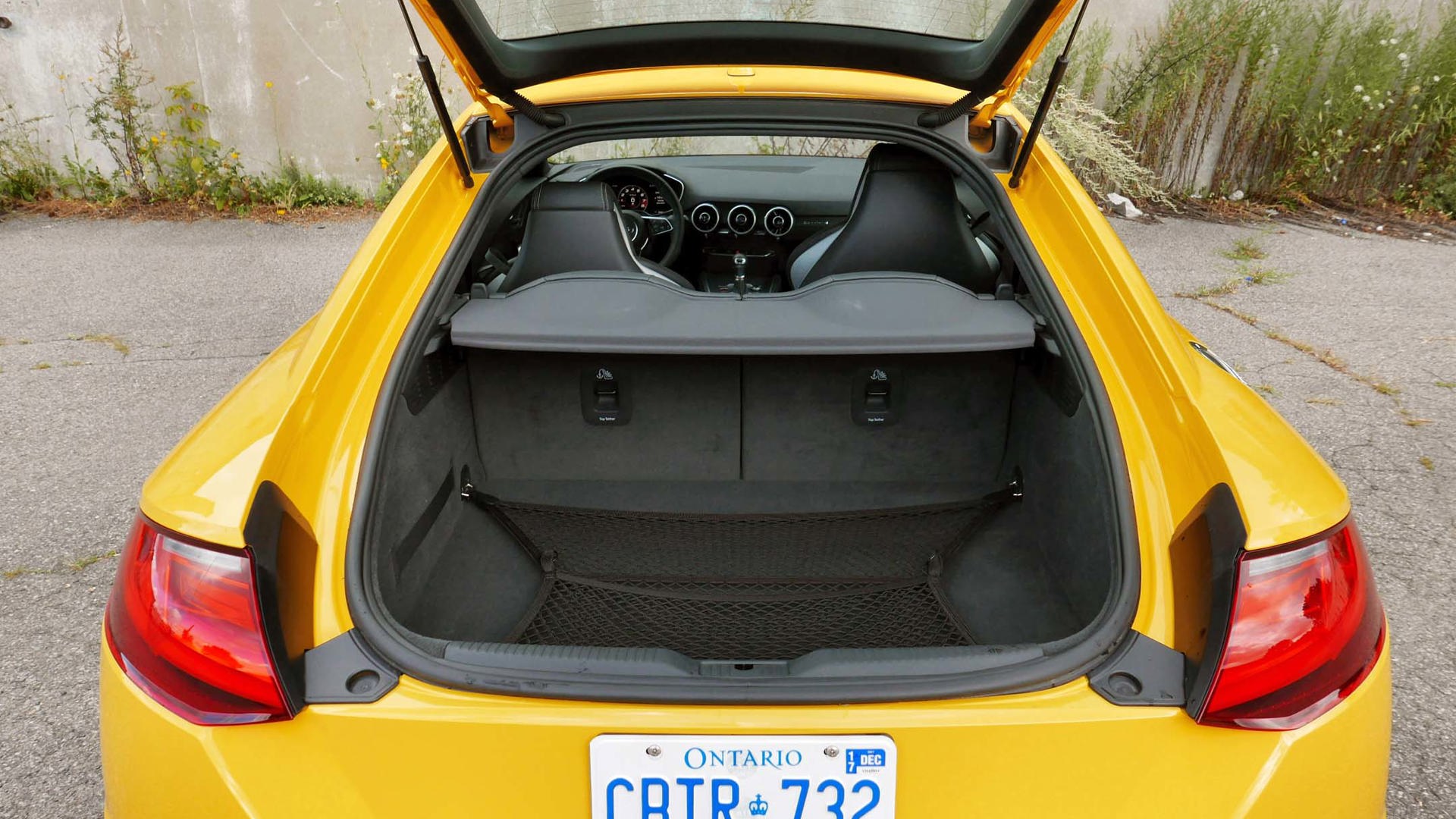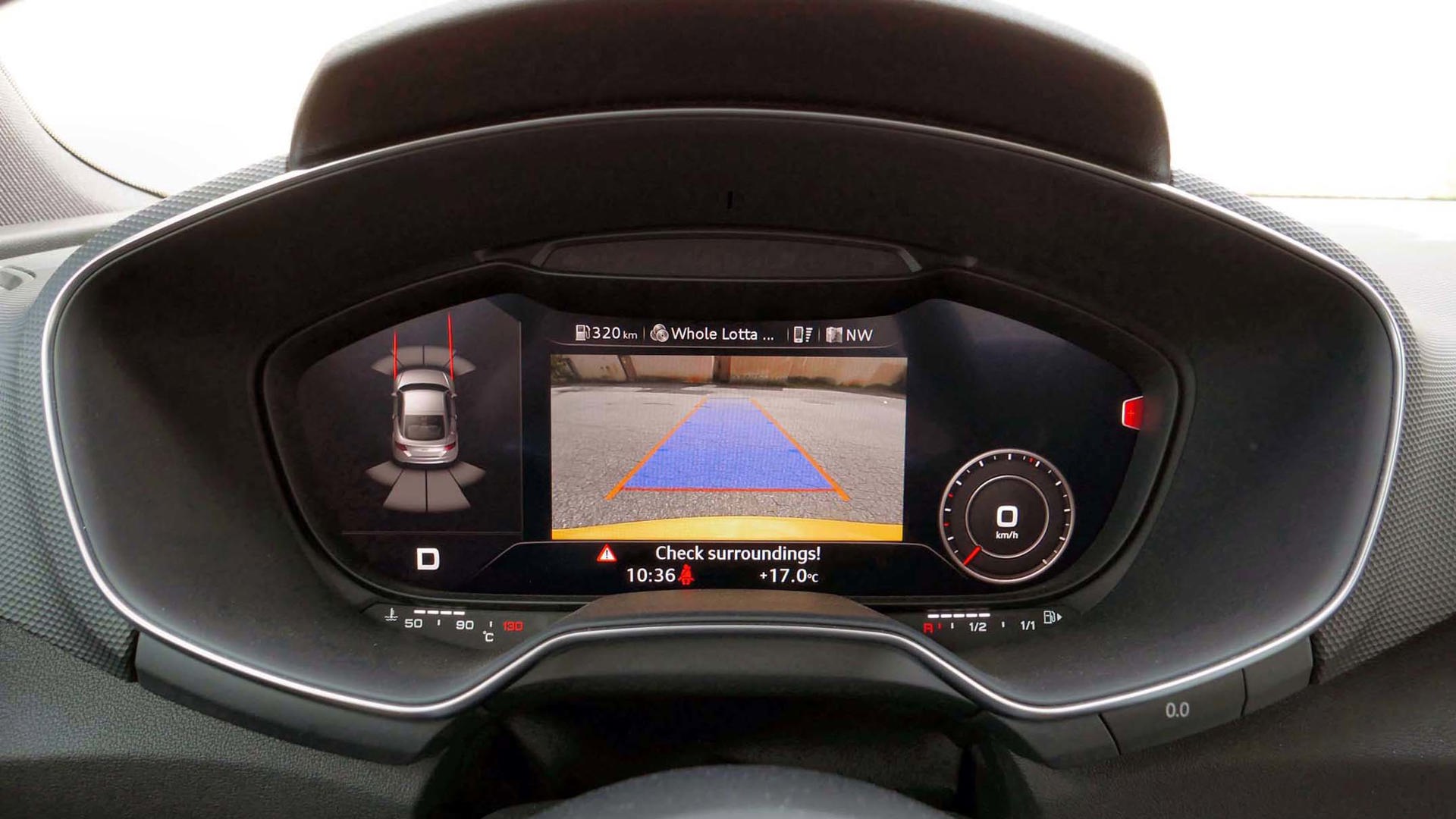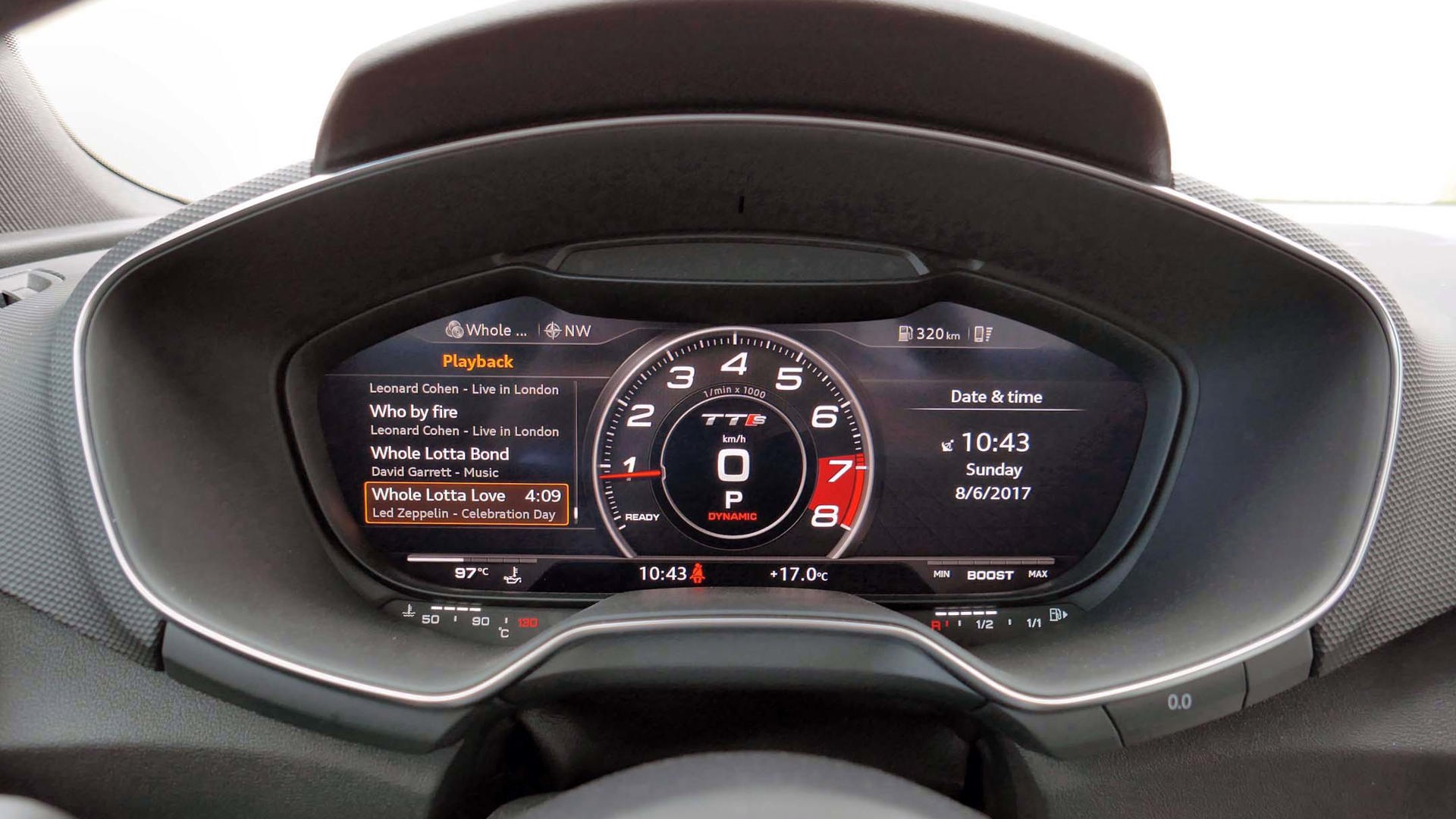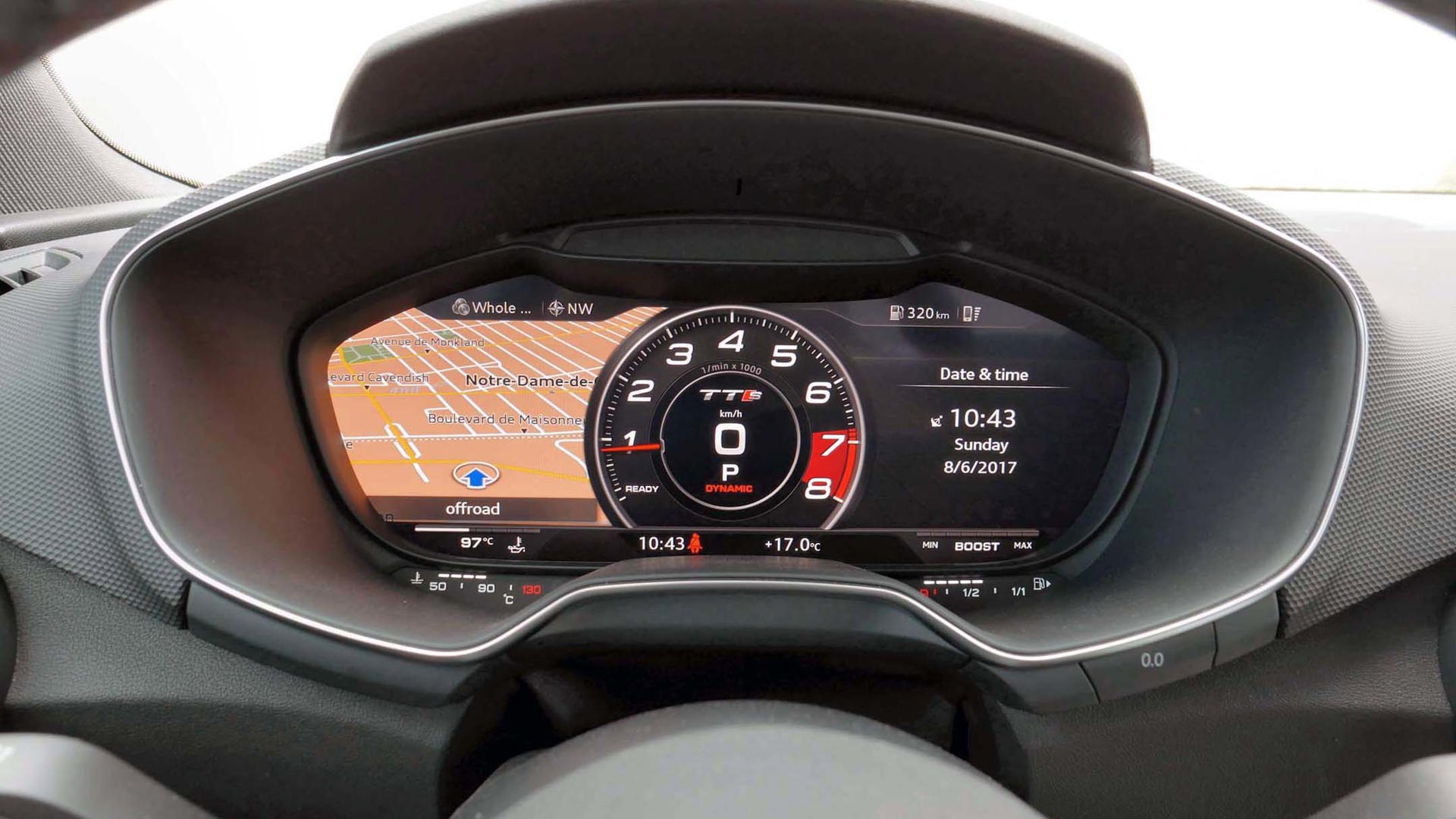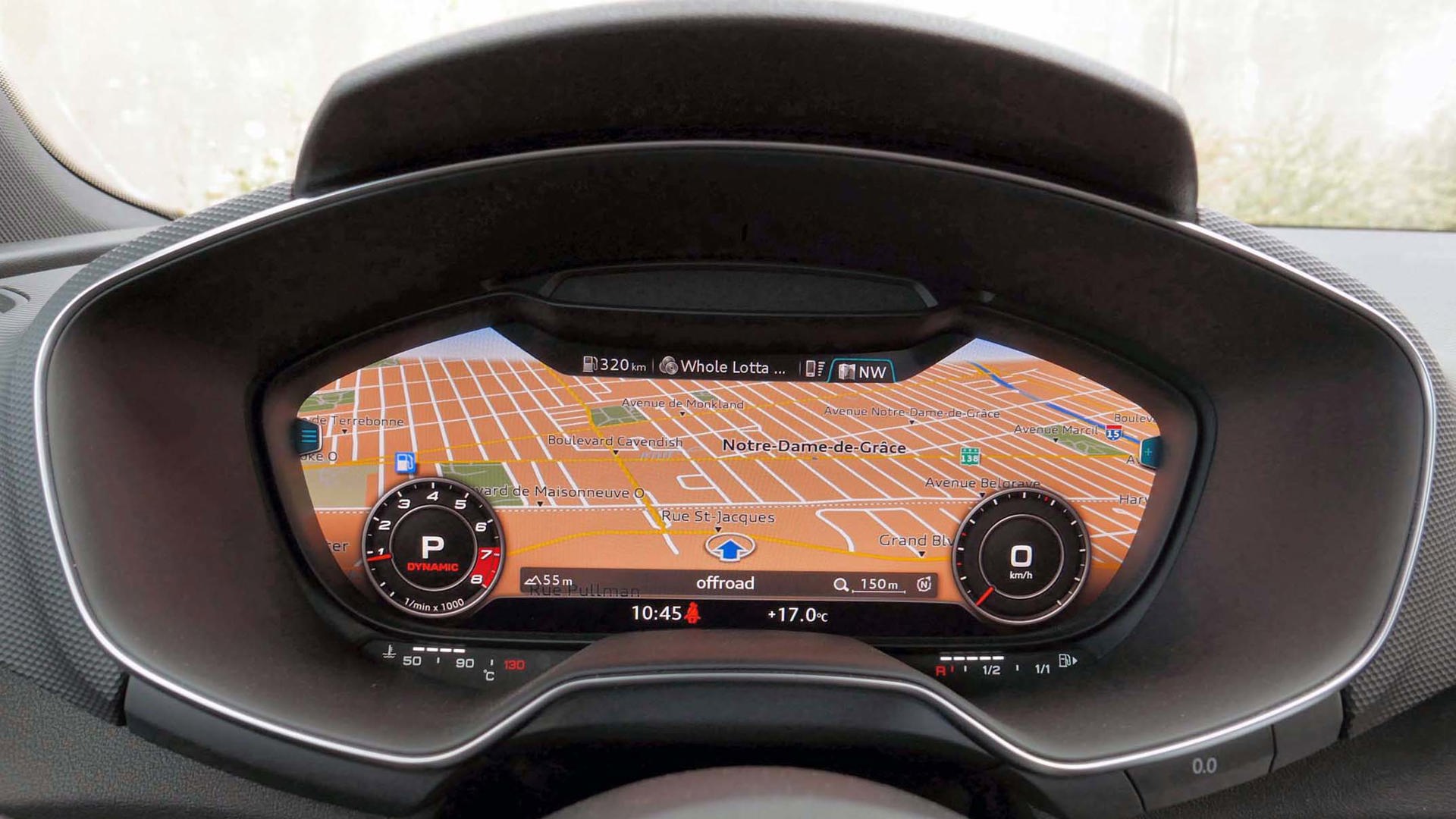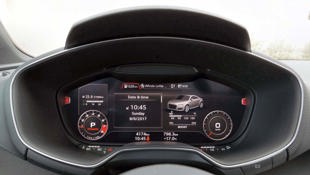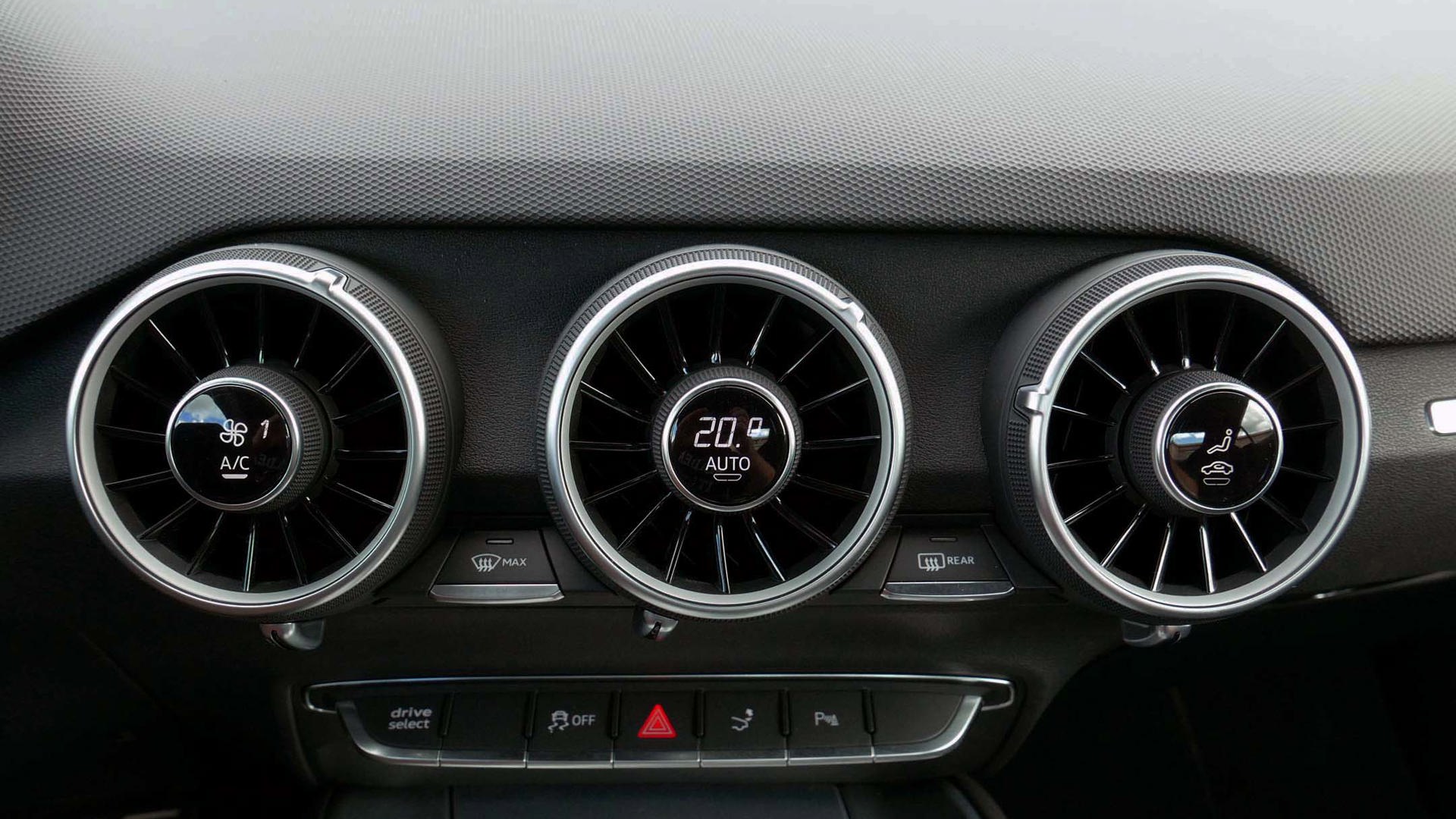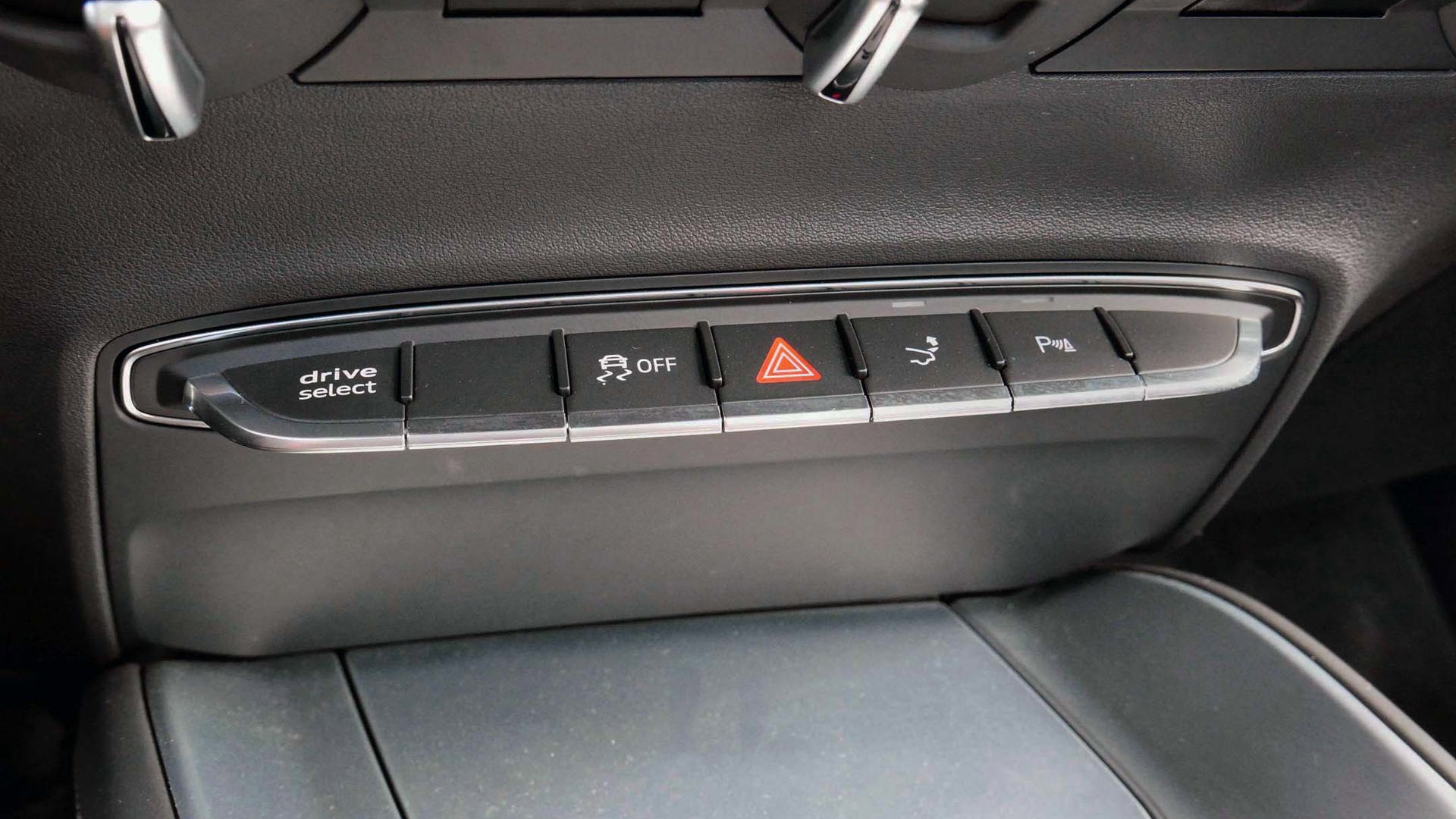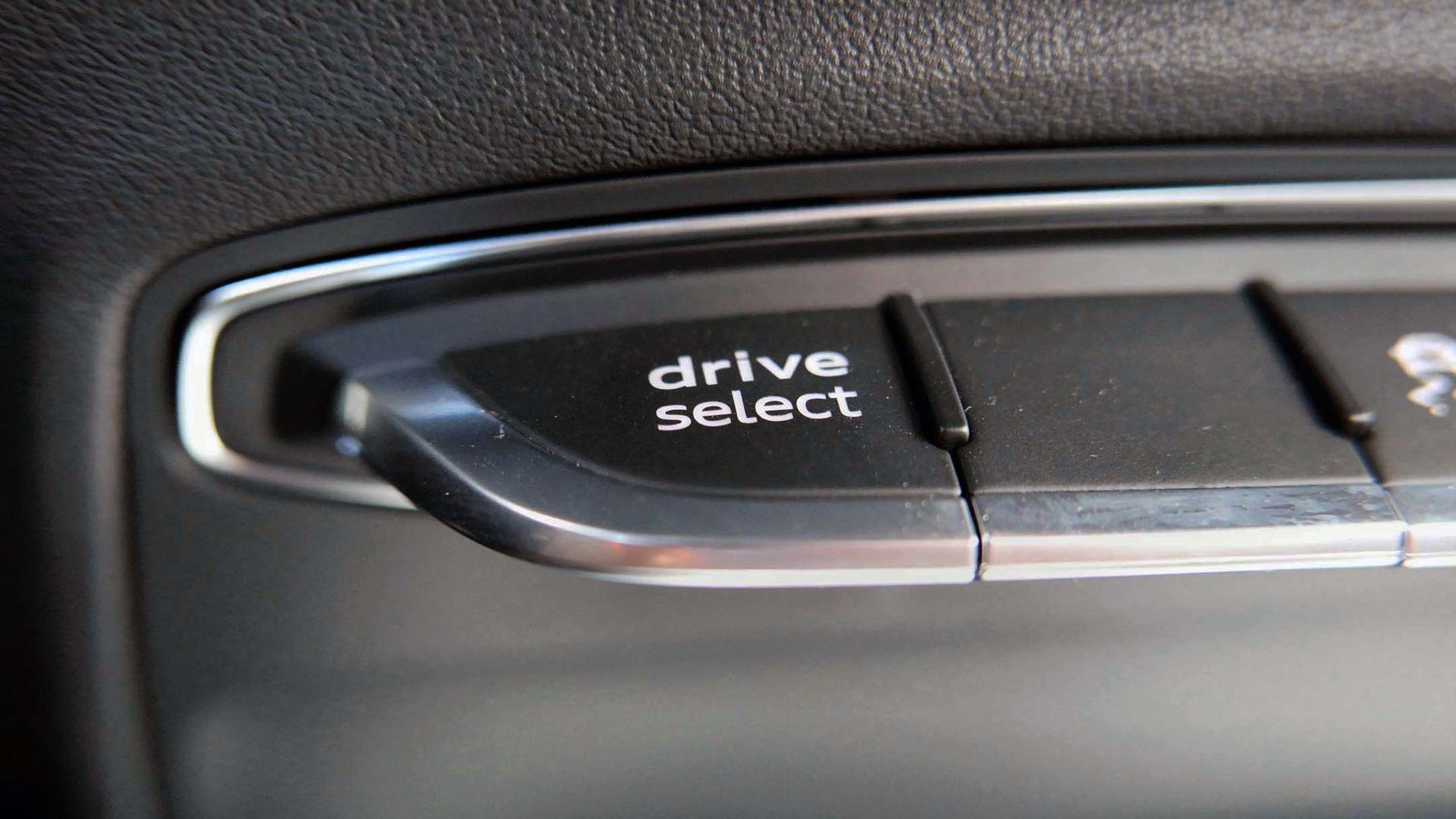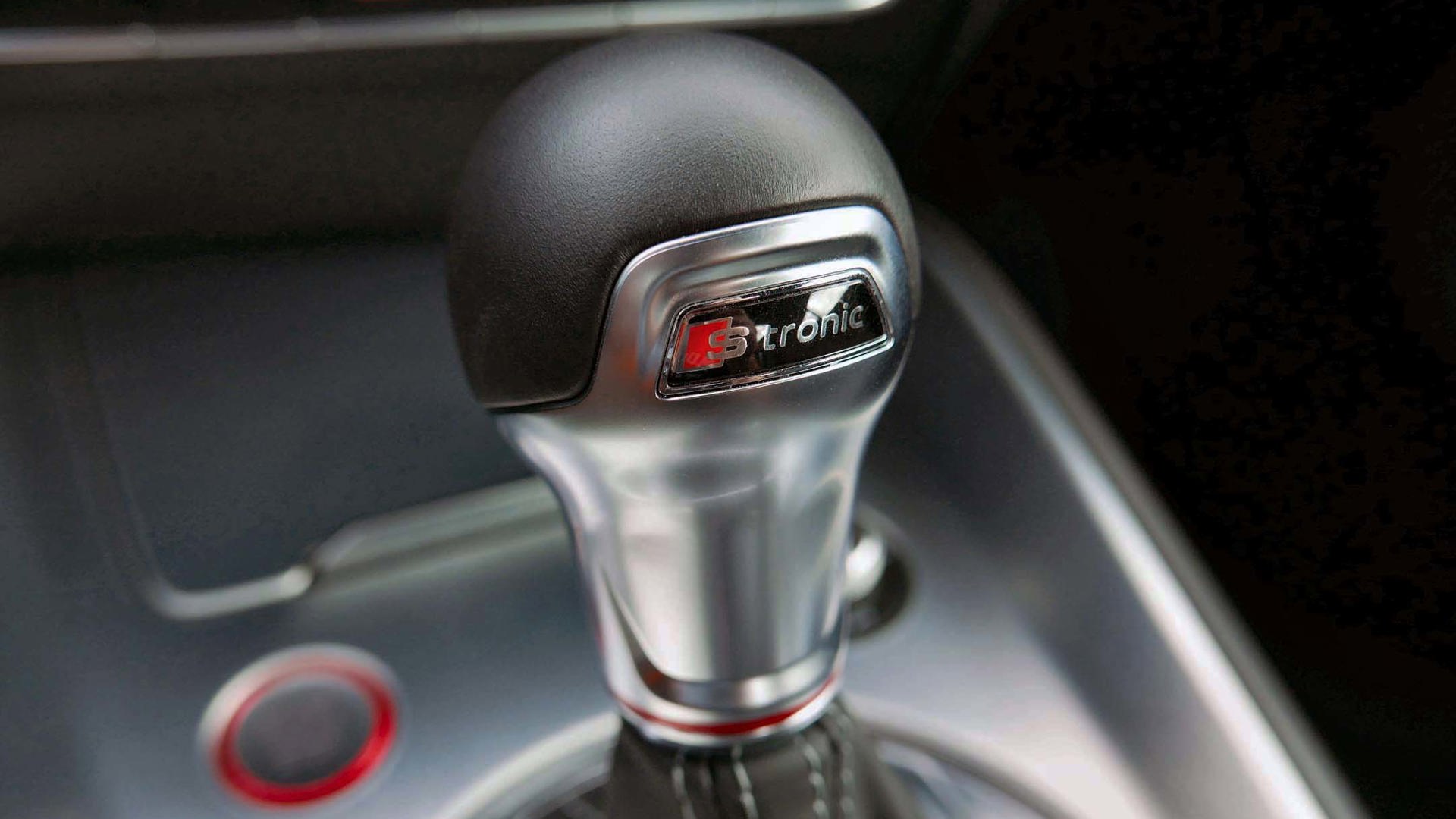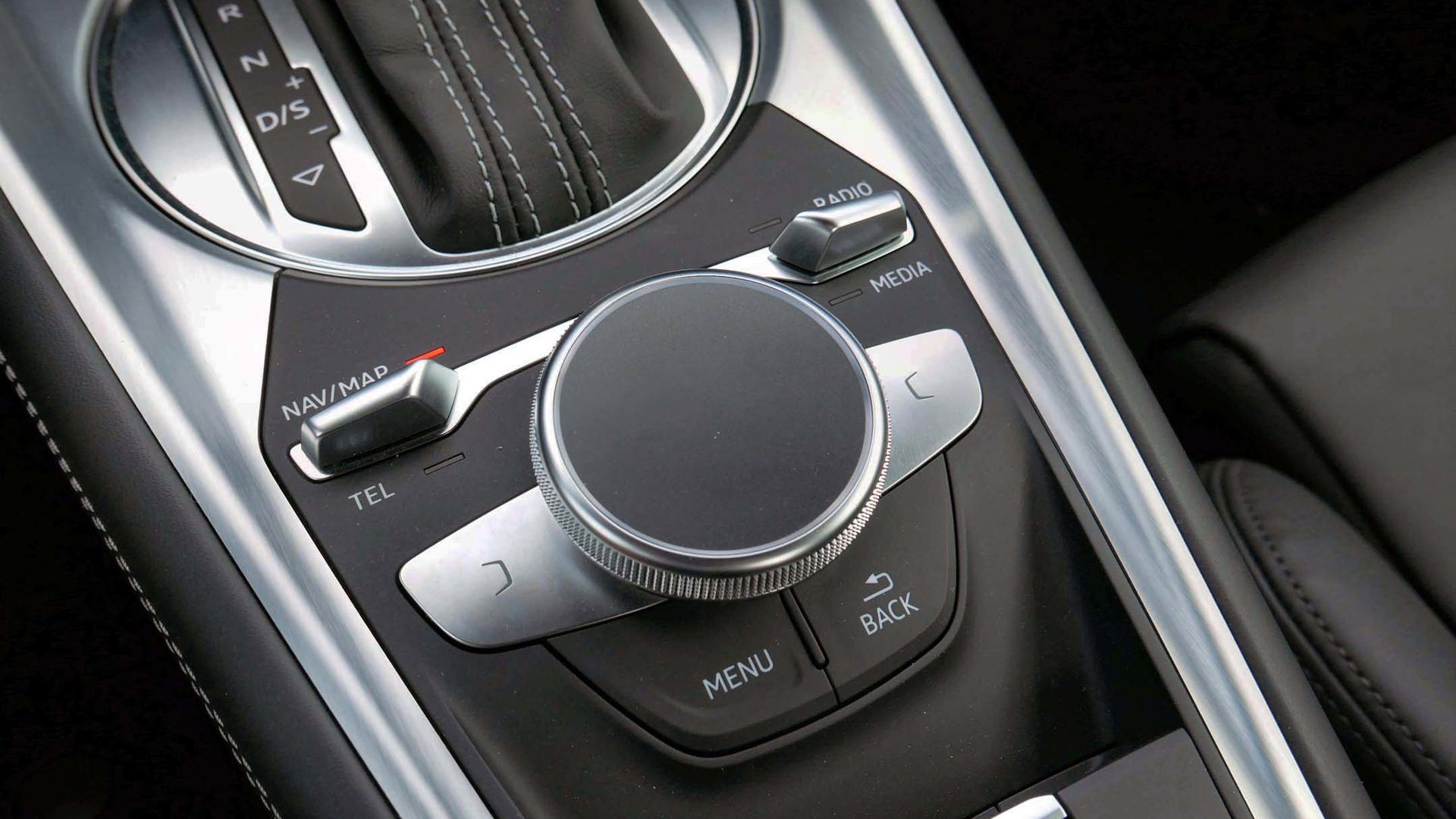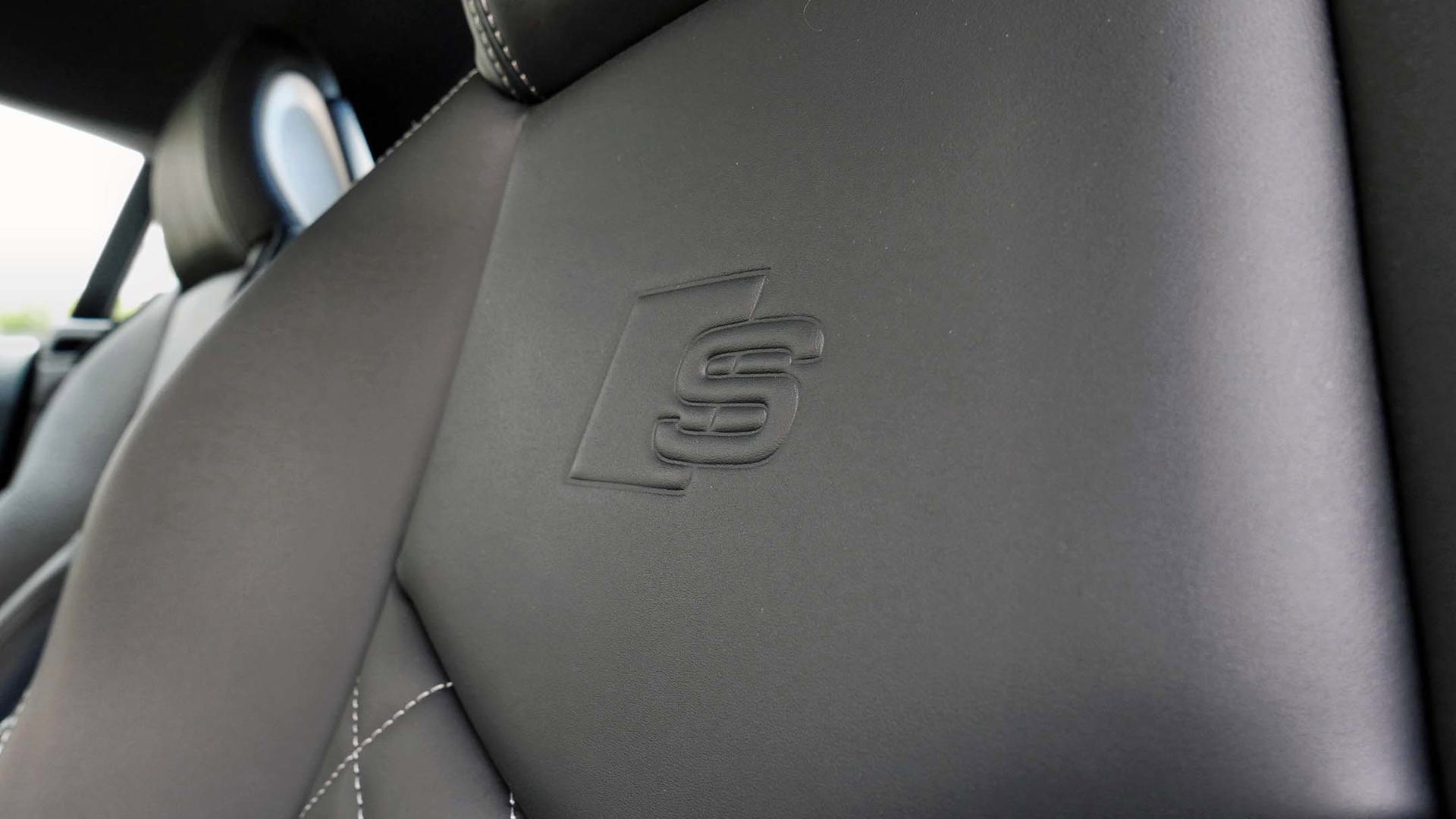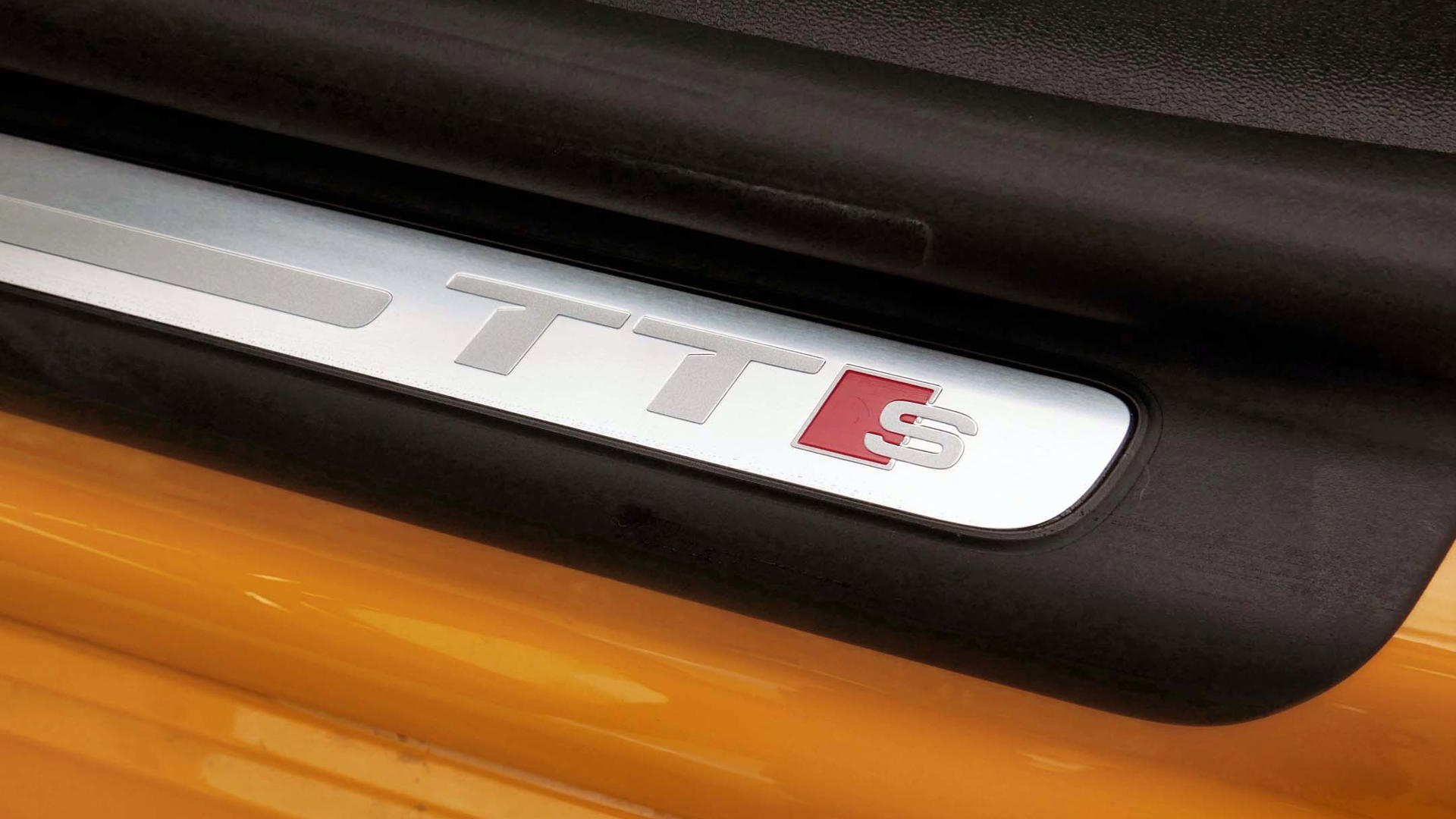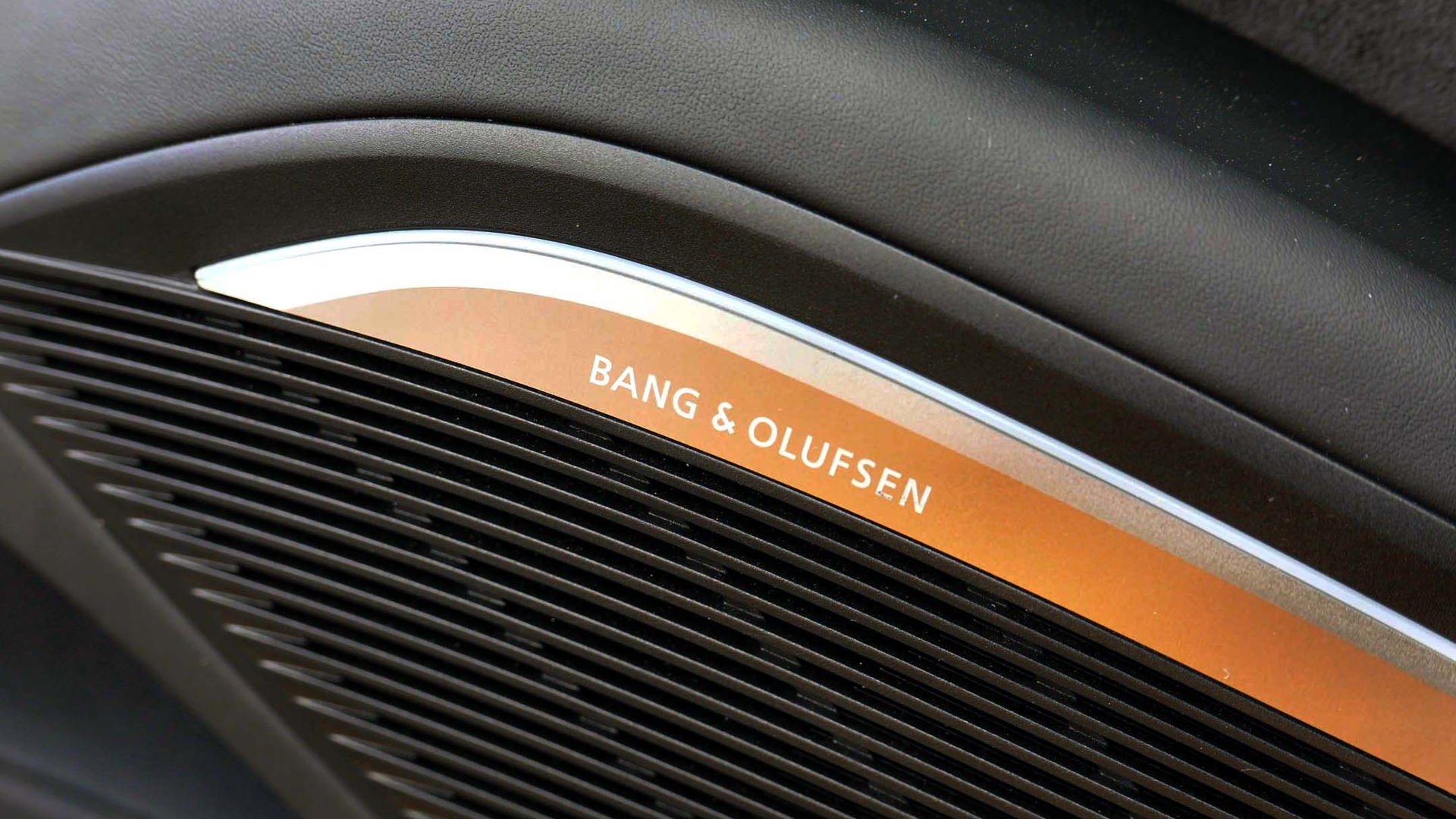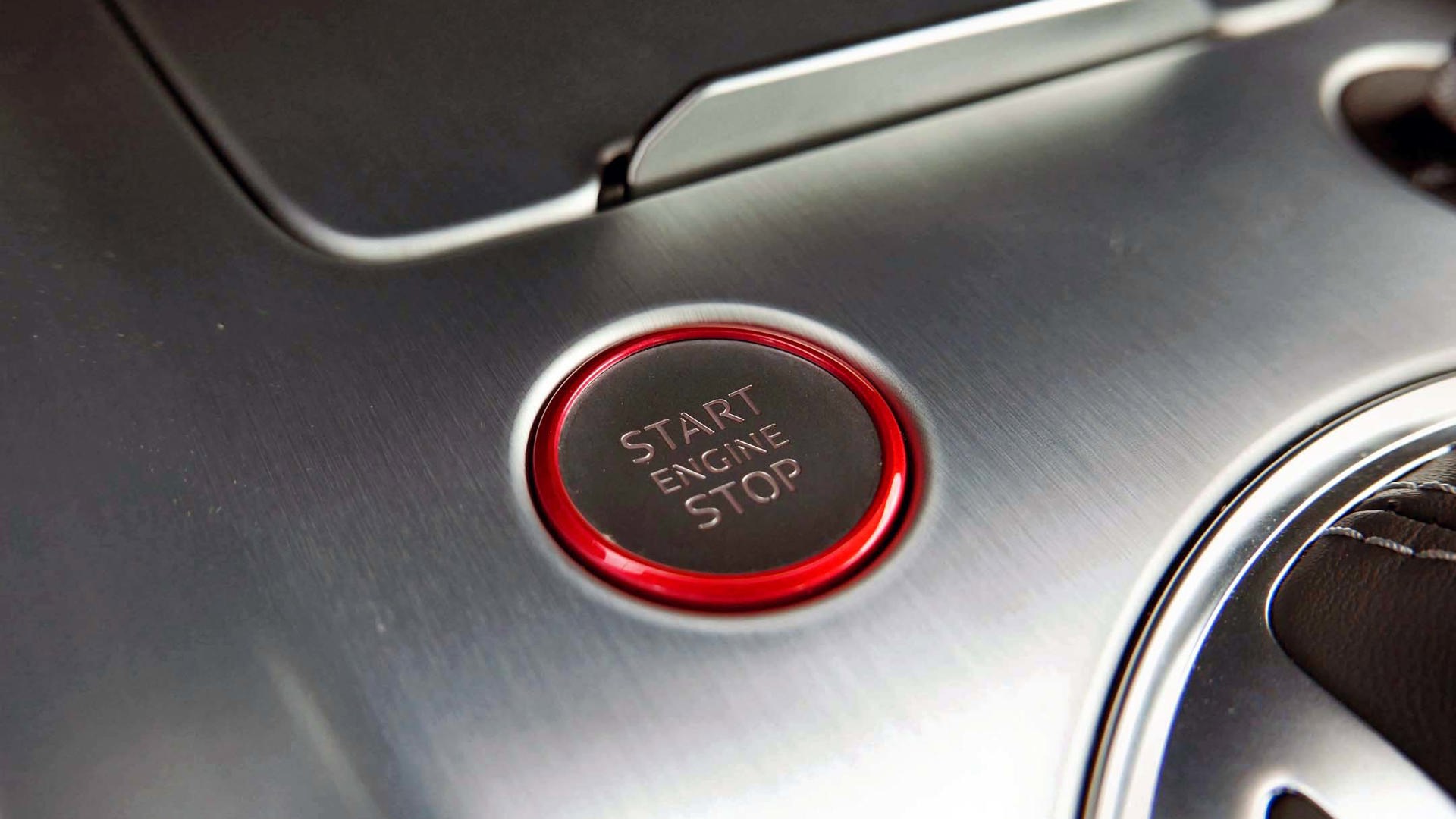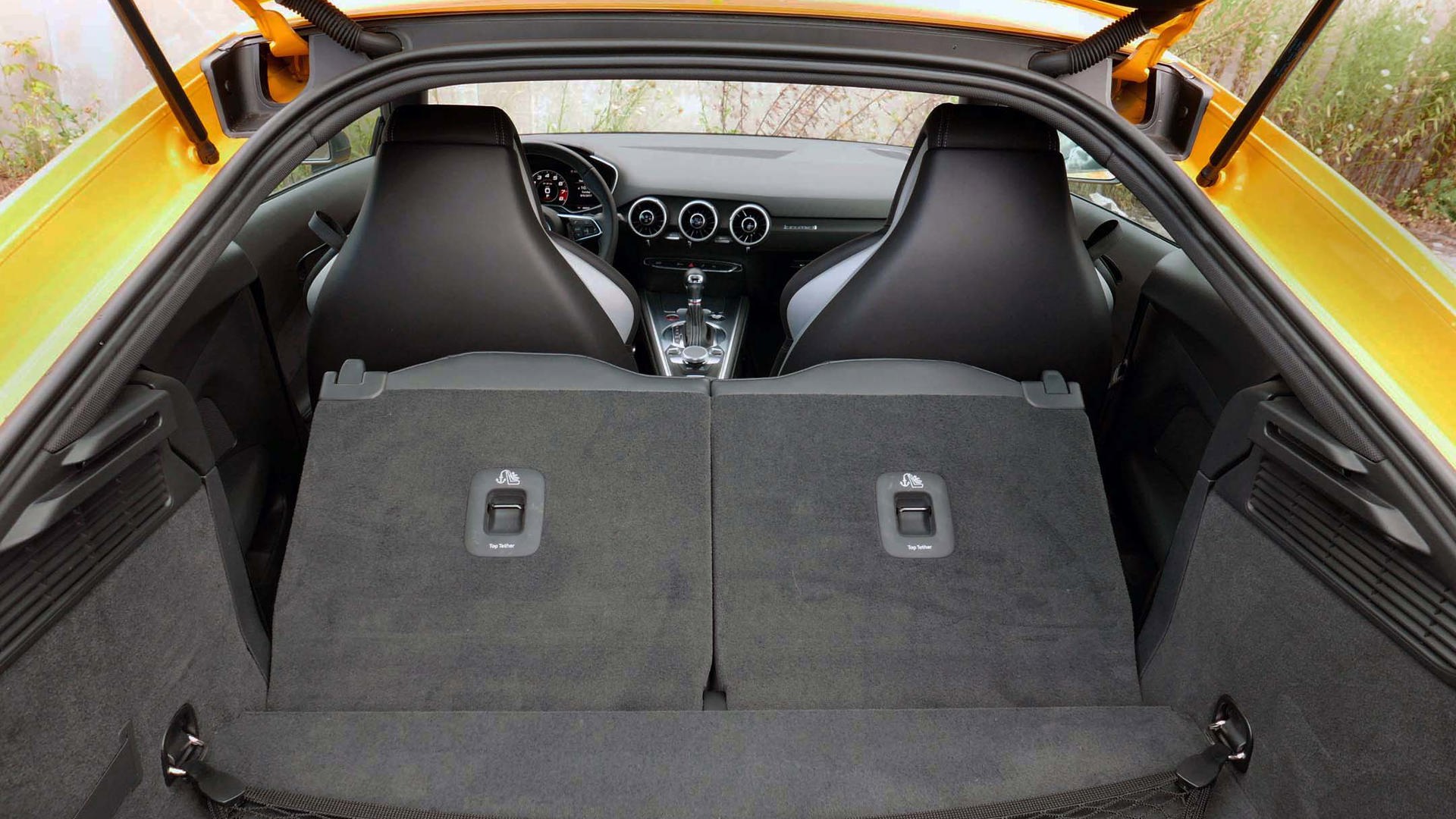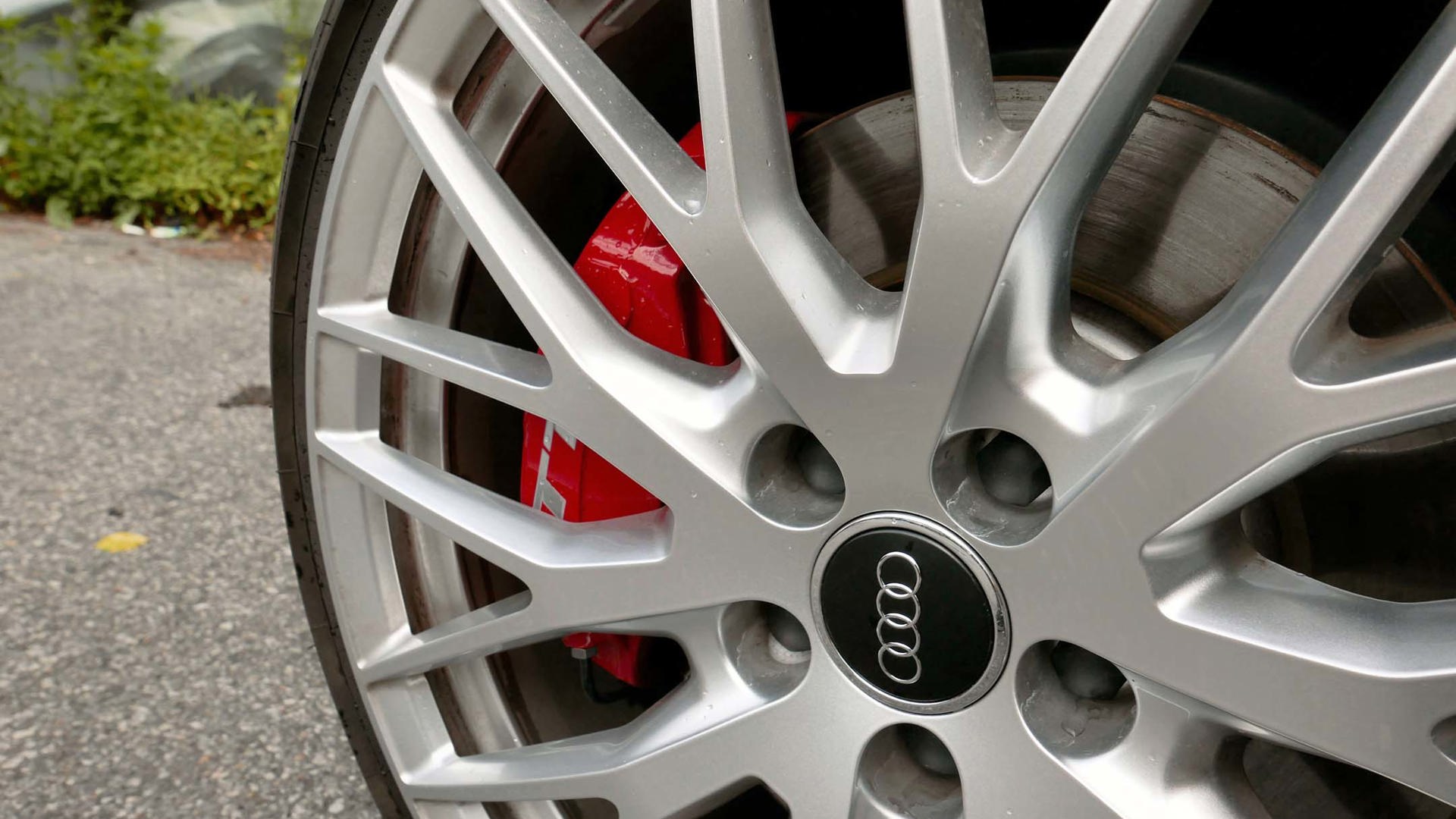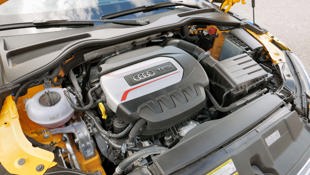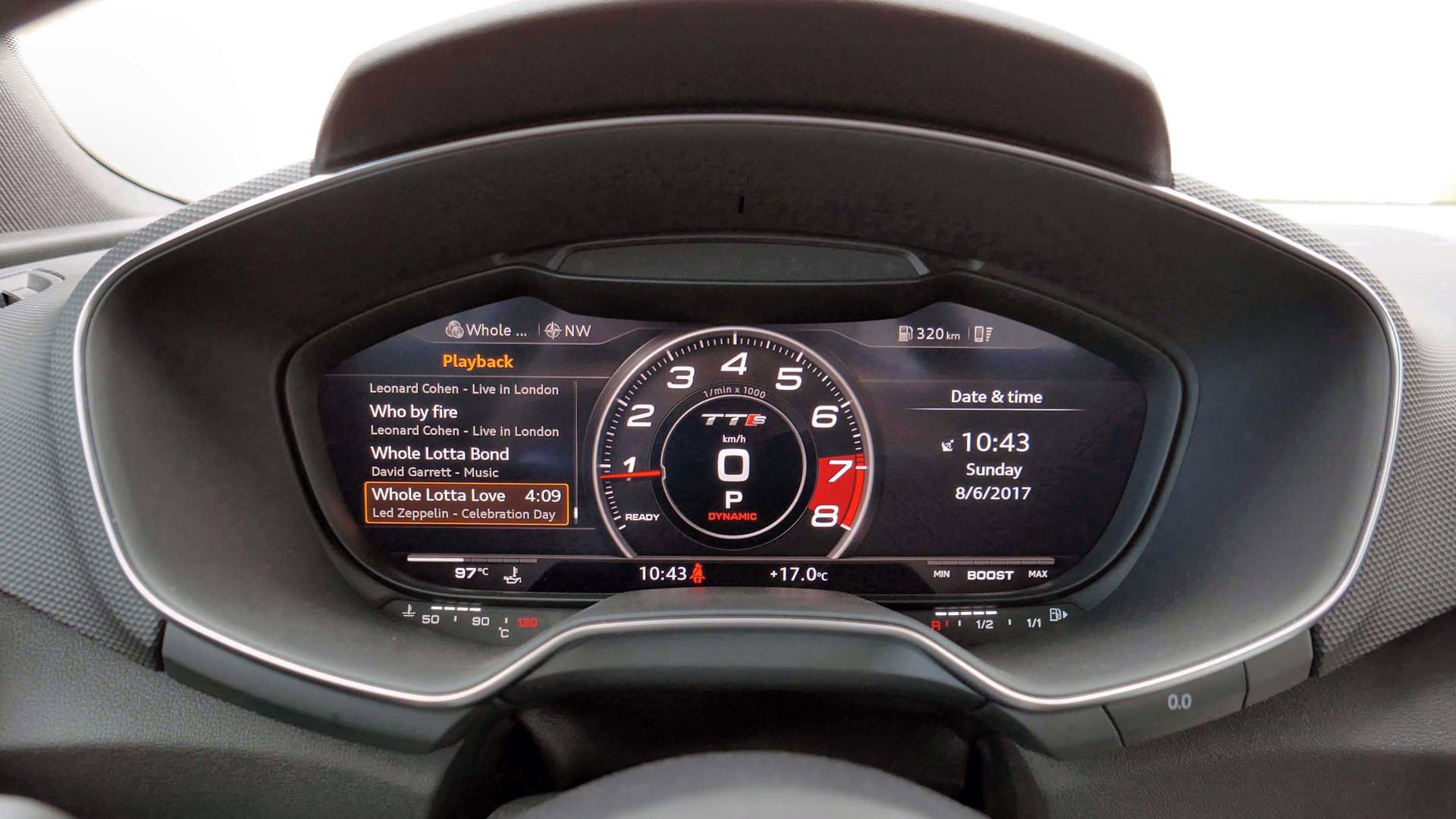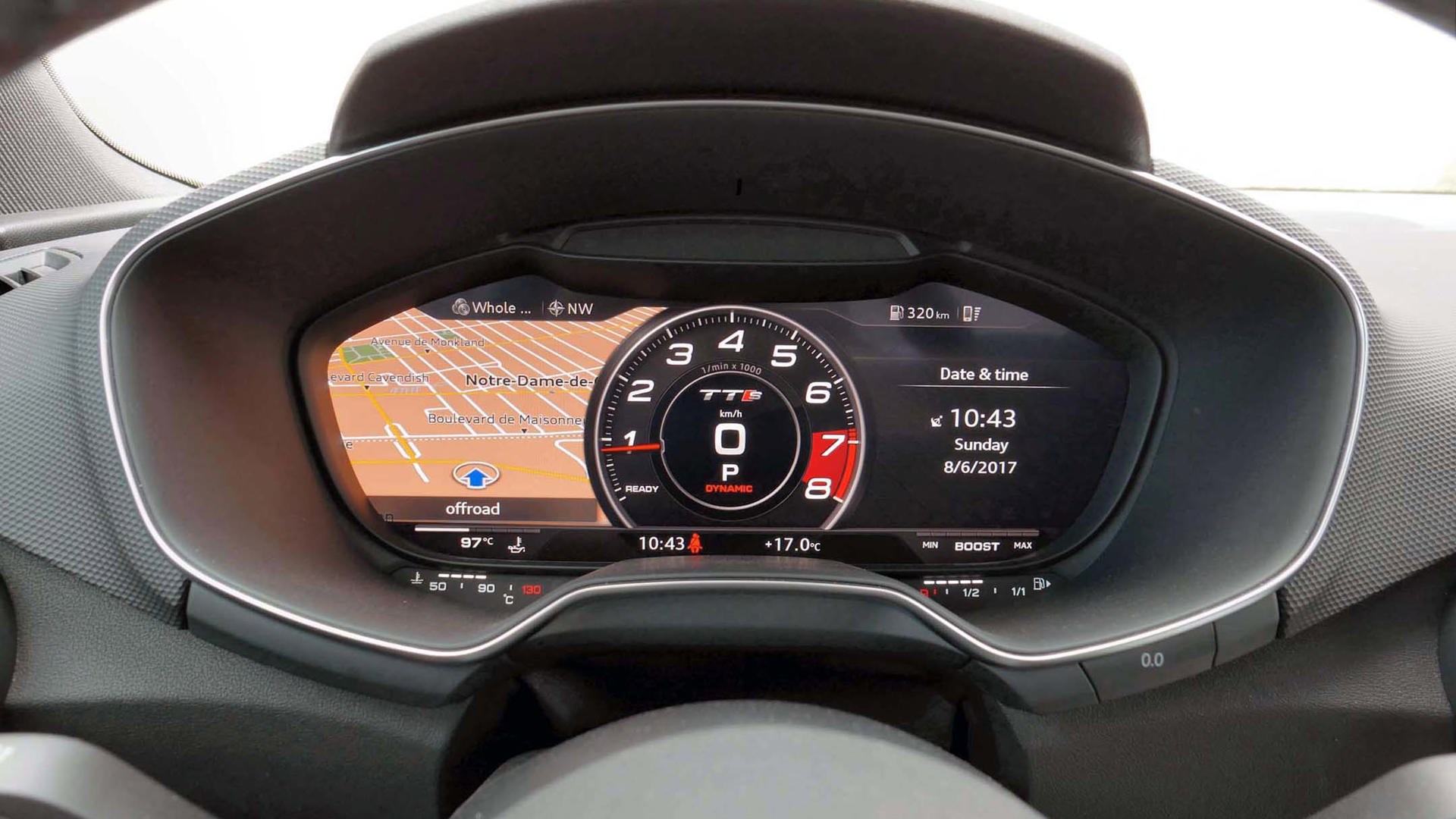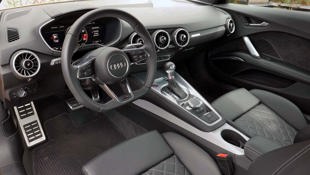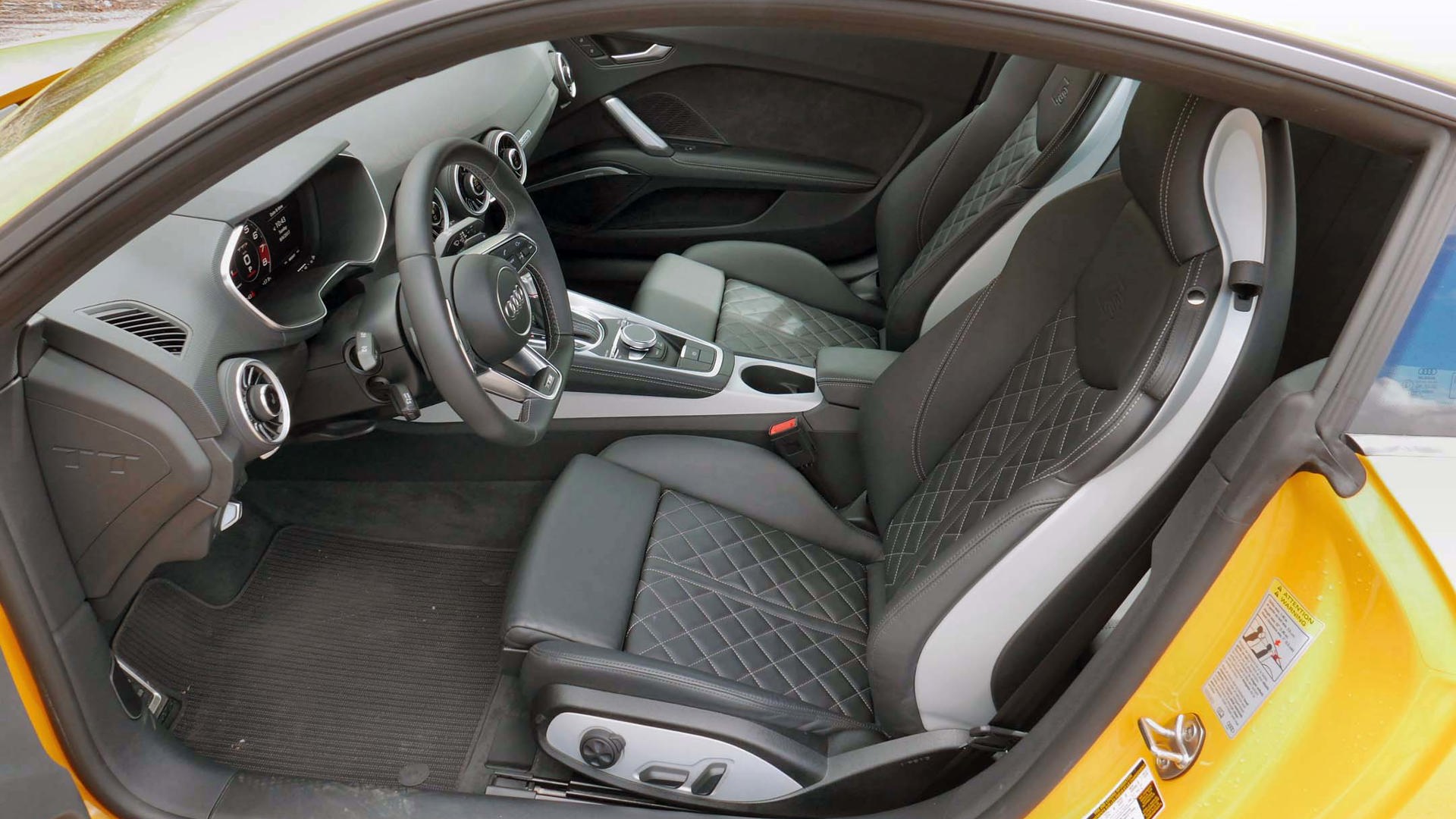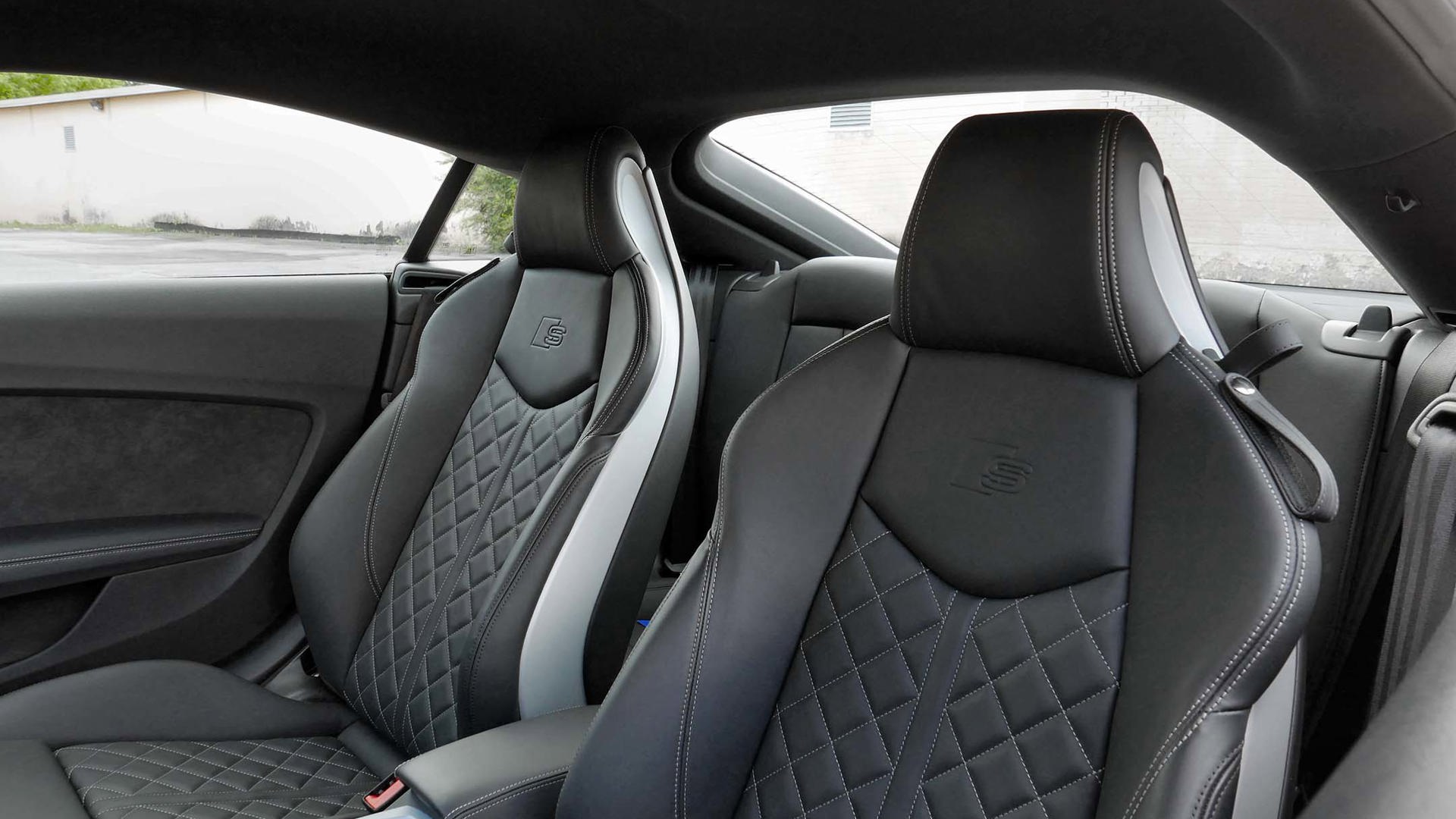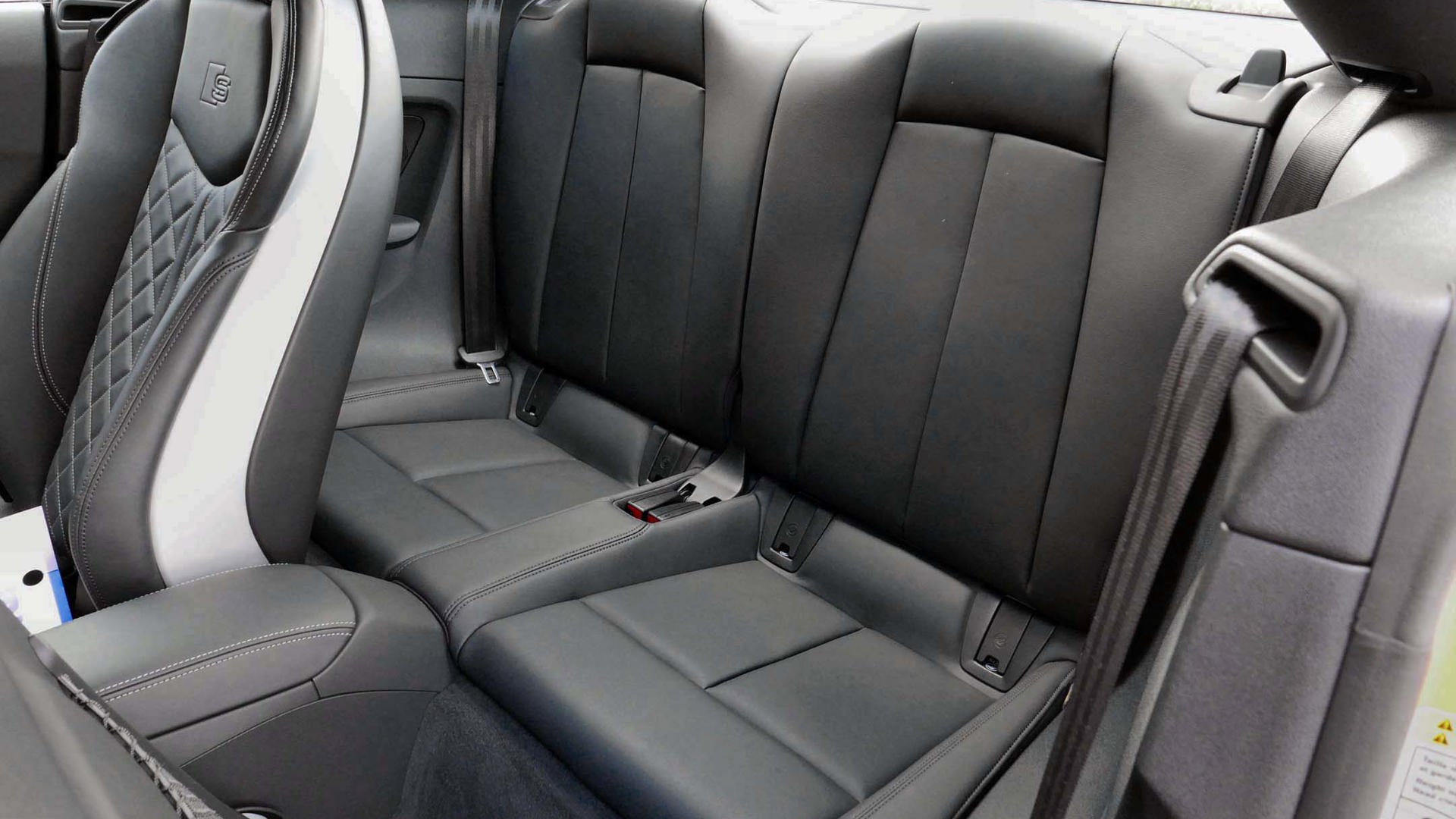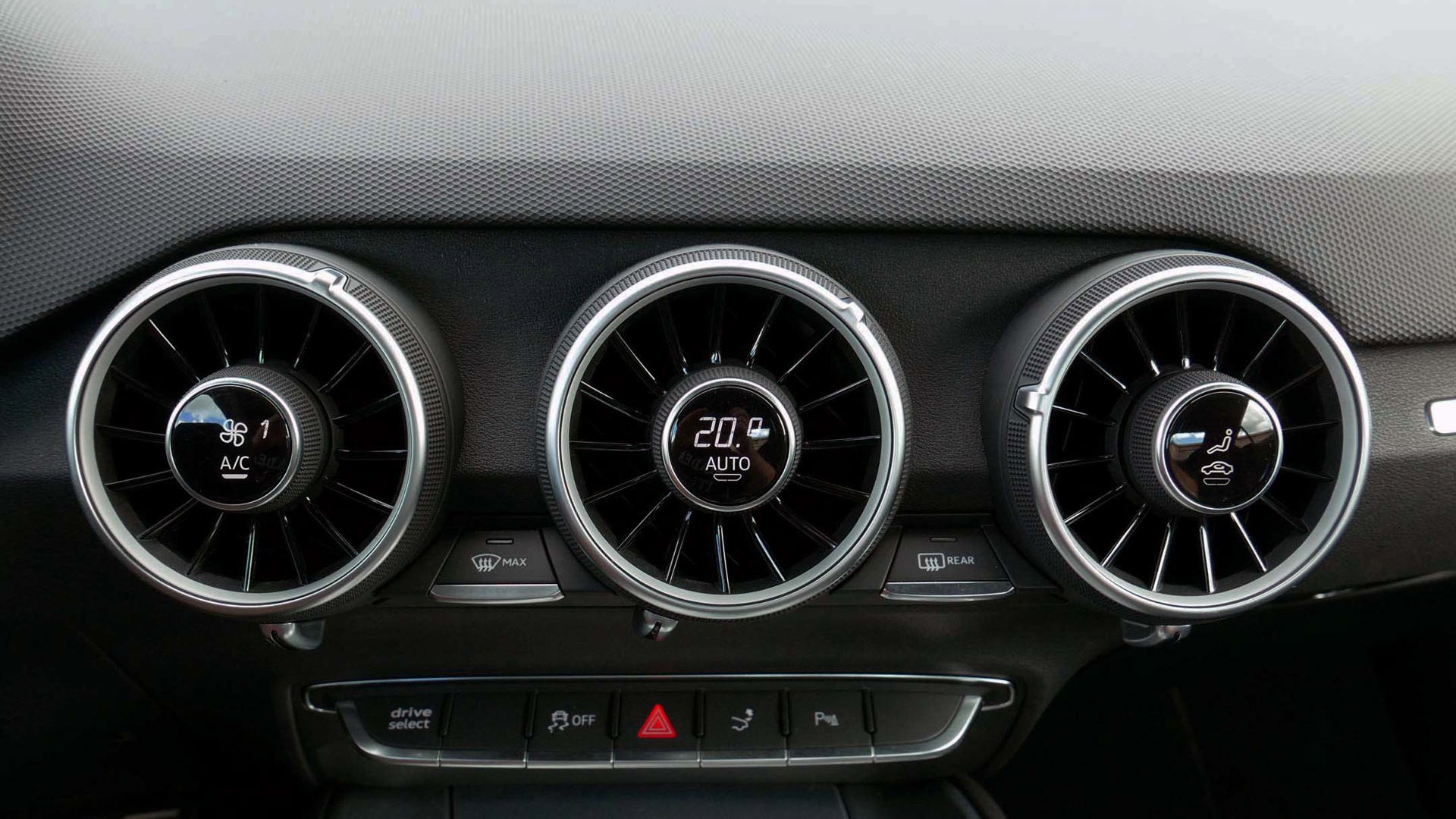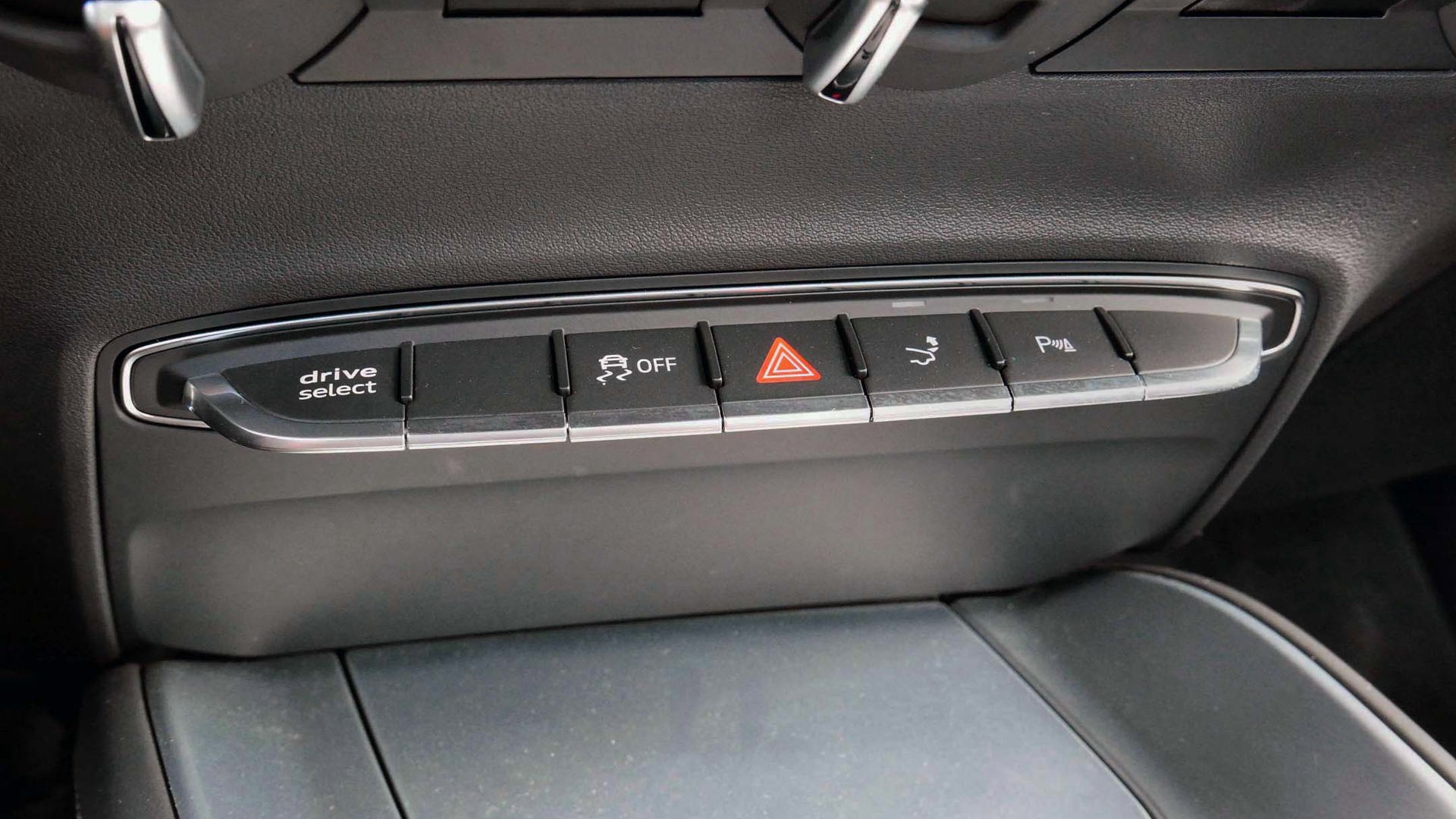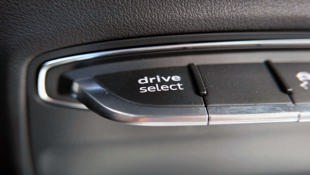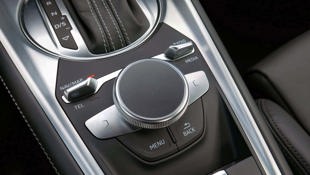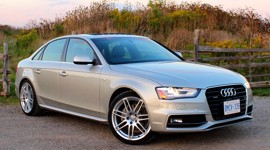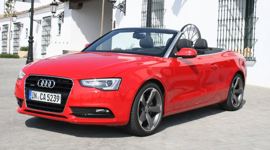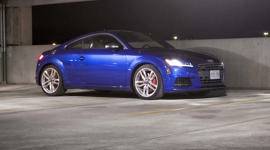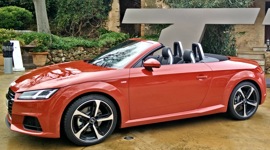 AutoTrader SCORE
AutoTrader SCORE
-
STYLING8/10
-
Safety7/10
-
PRACTICALITY8/10
-
USER-FRIENDLINESS6/10
-
FEATURES6/10
-
POWER7/10
-
COMFORT7/10
-
DRIVING FEEL7/10
-
FUEL ECONOMY8/10
-
VALUE6/10
The 2017 Audi TTS finds itself caught between two distinct worlds. This is a car whose initial fashion-first impact, while softened over the years by several evolutionary redesigns, continues to define a large part of its buyer base. The compact coupe stands apart from would-be rivals like the Porsche 718 Cayman and the BMW M240i and offers the chance to own a 7/8-scale version of Audi’s R8 supercar aesthetic at a fraction of the price.
Almost everything about the $62,700 TTS shouts “mini-GT”, a fun mile-eater with the fortitude required to hang in there on the twisty lines on the nav display should the mood strike. And yet, the overly stiff suspension system feels entirely out of place with the rest of the car.
At the same time, the TTS has clearly felt the pressure to perform like its more regal sibling, and the end result can sometimes confuse its sense of purpose and fuzz up the edges of its identity. This is a unique vehicle that has few direct rivals on the premium market, but that fact alone winnows down its potential buyer base and makes it a niche player in an already narrow segment.
Although I’d already spent considerable time behind the wheel of the 2016 model year Audi TTS (which at the time was fresh off of its shift to Audi/VW’s ubiquitous MQB platform), that driving was done during the winter months when the car’s standard all-wheel drive system played a strong role in forming my first impression. This time it would be dry streets and summer temperatures when evaluating the TTS, altering the parameters of the game just enough to get a well-rounded feel for the coupe.
Some things, of course, don’t change with the seasons. In addition to sporting the same eye-catching bodywork (finished off in searing Vegas Yellow), my tester’s interior maintained its minimalist vibe. The only display to be found in the TTS is mounted directly in front the driver, with Audi’s Virtual Cockpit tapping the LCD gauge cluster to pull double, triple, and quadruple duty in handling every aspect of the vehicle’s various interfaces. Climate, car settings, navigation (via a beautiful, ultra-wide map), phone deets, and entertainment options are, for better or worse, gathered together in the same place, where they also share on-screen real estate with the car’s speedometer and tachometer.
While there are several different ways to organize the visuals, interacting with the Virtual Cockpit is a little less-than-focused, as various buttons and dials are scattered across the steering wheel and at each pole of the TTS’ center console. You can also forget having your passenger help you input an address or scroll through radio stations, as there’s no way to share the cockpit screen without invading the driver’s personal space.
The lack of on-dash adornment in the form of a rectangular piece of plastic-framed glass gives the Audi TTS’ interior a somewhat barren look as seen from the front two positions, but it’s certainly not unpleasant.
As to how the cabin appears from the rear seats, well, pray you’re never called upon to answer that question, as they are vestigial at best. Better to fold them forward and increase the cargo space under the hatch, which easily transported two 15-inch racing tires.
The Audi TTS’ drivetrain also proved itself similar to my initial experiences with the car, with a few key differences. With ample traction available from sticky asphalt, it was easier to put the 2.0-litre, turbocharged four-cylinder engine’s power down without enraging the gods of oversteer, which allowed me to make better use of the TTS’ 292 horsepower and 280 lb-ft of torque. Still, the lack of sliding shenanigans also had the coupe feeling that much less lively, as point-and-shoot driving through traffic and around tighter bends lost much of its wintertime drama.
The six-speed S-tronic dual-clutch automated manual transmission continued to deliver rapid upshifts, particular when in “S” mode, but it continued to present the same low-speed lollygagging found in all VW-sourced dual-clutch units, banishable only by using the standard launch control system in pursuit of its 4.3-second 0–100 km/h sprint.
The more noticeable change in character between winter and summer driving occurred underneath the Audi’s floorboards. Specifically, the magnetically adaptive suspension system outfitted to the TTS, in conjunction with the thin band of high-performance rubber wrapped around its optional 20-inch rims, delivered ride quality that was exceptionally stiff-legged. Even when switching the Audi Drive Select system from Dynamic to Auto or Comfort, the TTS remained bouncy and boomy over rough roads, of which there are many on the island of Montreal (where I did most of my driving).
It was this sinewy character – which I had somehow missed when riding over snow-covered streets with thicker winter sidewalls – that had me feeling that the 2017 Audi TTS is almost trapped between two realities. At its core, almost everything about the $62,700 TTS shouts “mini-GT”, a fun mile-eater with the fortitude required to hang in there on the twisty lines on the nav display should the mood strike. And yet, the overly stiff suspension system feels entirely out of place with the rest of the car, which doesn’t offer the kind of incisive road feel or sharp steering needed to tolerate, or at least explain, the bumpiness.
This is problematic, because if you’re shopping for a pure sports car, you’re going to skip the Audi TTS in favour of the Porsche 718 Cayman, while those who need a pretend-usable rear seat will most likely head to the nearest BMW dealership. The middle ground between these two points should be comfortable TTS territory, and yet the question mark of how tolerant would-be buyers will be of its harsh attitude towards pockmarked pavement puts pause where none should be applied. It’s the one thing you shouldn’t – and most likely won’t be able to – ignore on a test drive of this otherwise excellent luxury alternative.
| Engine Displacement | 2.0L |
|---|---|
| Engine Cylinders | 4 |
| Peak Horsepower | 292 hp |
| Peak Torque | 280 lb-ft |
| Fuel Economy | 10.3/8.6/9.5 L/100 km city/hwy/cmb |
| Cargo Space | 340 L |
| Model Tested | 2017 Audi TTS |
| Base Price | $62,700 |
| A/C Tax | $100 |
| Destination Fee | $2,095 |
| Price as Tested | $71,595 |
|
Optional Equipment
$6,700 – Audi Lane Assist $650; B&O audio system $950; 20-inch rims $800; Driver Comfort Package (front and rear parking sensors, backup camera, Audi side assist and intelligent keyless entry) $1,400; Red brake calipers $400; Pneumatic seat side bolsters $300; Navigation package $2,200
|
|
